
MARKETING JOURNAL.
Why are magazines and print publications still relevant to your marketing mix?
Marketers often ask if magazines and endemic publications are still worth the spend in an era of Google searches and ChatGPT answers. From my first bike launch with Rocky Mountain to today’s AI-driven search landscape, I’ve seen how trusted outlets still drive visibility, credibility, and storytelling that digital ads alone can’t deliver.
Launching a Bike Got Me Thinking
Back when I worked on my first bike launch with Rocky Mountain, the Slayer, one of my priorities was finding interesting outlets to share the news. I had a list of regional media, generic outdoors media and endemic mountain bike outlets to leaf through. But where to start? I put my self in the shoes of a consumer, someone looking to buy the latest and greatest long-travel mountain bike.
Dirt
A legend of the paper media era (sadly no-more)
Years ago, that was easy: browse the local newsstand or bookshop and grab a handful of magazines. Sign up for monthly copies of said magazines but only the ones with the best stories, most colourful reviews and coolest pictures. I subscribed, I researched, I compared.
Later, once I became a marketer, from a brand perspective, we picked a few magazines, sent a press release, and waited for the issue to land in subscribers’ mailboxes.
Today it’s different. People start with Google — or even ChatGPT. Instead of flipping pages, they type “best trail bike 2025” or “best value downhill bike” into a search bar or AI assistant.
Either way, the first stop is digital.
Enduro Mag
A classic, Euro-focused outlet with incredible photography
Are Endemic Media Buys Still Relevant in the Digital Era?
As marketers, we want messages in front of the right people at the right time. Ultimately, we’re chasing a purchase. When reviewing media kits for publications, I was surprised to find some authoritative outlets had low social followings and average digital engagement. I was scratching my head, trying to figure out how to integrate these outlets into my mix for product launches. Why invest in outlets when you can’t trace ROI as cleanly as with digital ads?
The real value of media outlets isn’t necessarily their follower count or clean attribution models.
It’s a bundled package.
First, you’re tapping into their SEO power
Strong outlets show up first on Google — and they also influence what ChatGPT surfaces in answers (also known as GEO or Generative Engine Optimization).
That’s thanks to domain authority: a measure of a site’s credibility built through consistent publishing and backlinks. If your launch review runs on a respected site, it’s far more likely to:
Rank high in Google, and
Feed into AI recommendations
Dig deeper on SEO, here: Moz – What is Domain Authority
Second, Supporting Media = Supporting the Industry
Think of the bigger picture here. Media does more than convert. We’re operating in a ecosystem that wants to share exciting news about our products and in turn needs the funding to pair announcements with great storytelling and in-depth reviews.
Freehub Magazine
Home to some of my favourite MTB adventure stories.
Next, the people want trust.
In the 2024 Edelman Trust Barometer Global Report, traditional media remains one of the most trusted sources of info worldwide, showing that credible outlets still carry influence especially as social and owned media face greater skepticism.
Finally, print creates space
Print can also be a refreshing way to cut through the noise. In a world where feeds are crowded with ads and sponsored posts, a beautifully designed print spread can command attention in a way digital sometimes can’t. Readers often slow down with a magazine in hand, giving your story or product more room to resonate.
Spoke
New Zealand knows how to do editorial.
Best Practices for Product Coverage
Paying for space doesn’t guarantee glowing editorial. Success comes down to:
Great products: reviews can’t fix a mediocre release.
Timing: although not always possible, aim to ship samples early. “First look” = weeks; long-term = months.
Support: provide assets, details, and quick responses.
Respect: once it’s in their hands, step back. Integrity is the value.
Next time you buy a print ad, think about the bigger picture: you’re not just buying space, you’re funding the storytelling ecosystem.
Measure what matters
Forget vanity metrics like subscription counts or followers. Instead, focus on:
Website traffic and rankings
Domain authority
Web-based engagement (time on page, comments, newsletter opens)
That’s where the real influence lives.
Media publishing is still critical
Throughout my time launching bikes with Rocky Mountain, I explored partnerships with cool publishers and brought the ethos across to other sectors that are supported by endemic media. Consumers may not wait for magazines in the mail anymore, but when they research a product, it’s still trusted outlets that shape decisions. Those outlets rank in Google. They inform ChatGPT. They still have an irreplaceable tactile feel.
They tell the stories of our industries.
Goodbye, Rocky.
Yesterday, shortly after starting my workday, I was informed that my role had been eliminated at Rocky Mountain. While this decision wasn’t entirely surprising given the broader trends in the bike industry over recent years—it’s still tough. I loved working with my team and the wonderful people that worked across the company.
Yesterday, shortly after starting my workday, I was informed that my role had been eliminated at Rocky Mountain. While this decision wasn’t entirely surprising given the broader trends in the bike industry over recent years—it’s still tough. I loved working with my team and the wonderful people throughout the company.
I will always be a fan of the brand and will continue to root for Rocky Mountain from the sidelines. A couple of things I’ll certainly miss:
Shuttling Seymour with the brilliant minds and athletes behind Rocky Mountain. I discovered a world of loamers and classics on those North Shore mountains. I’ll never forget watching folks like Thomas Vanderham and Wade Simmons casually hit those ‘A’ lines on Cambodia and Log Cabin.
Rocky Mountain party trains regrouping after CBC trail.
Experiencing the spiritual home of freeride: Virgin, Utah. For the launch of the Slayer, we assembled a talented crew of creatives and athletes to capture the raw riding typically reserved for Red Bull Rampage athletes. Such a special crew. Such a cool place.
Pausing for a snap at in the desert sunset with Sebastien and Lucy
Job well done with Margus, Lucy, Hayden and Alex in Utah.
I’ve recently shared this one but, still enamored with the office trip to the Chilcotin Range we did this past summer with Tyax Advenutres. What a place to connect, deep in the wilderness on bikes. Read about it here, Penning a Partnership.
The amazing women of the Chilcotin trip: Kathy, Clara, Ashley, Ellie and Georgia (from left to right), not pictured but equally amazing people: Paige, Bobbie and Sebastien.
I’ll always love the time spent in the development centre watching the testing and designing of our bikes. Soaking up knowledge from everyone that had a moment to spare. But seriously, nothing cooler than watching a frame tested to failure.
Behind the scenes for the Altitude launch video in the Rocky Mountain development centre.
And what would a goodbye post be without highlighting some of the cool campaigns we rolled out during my time managing the brand:
The Slayer, shot in Utah by Liam Mullany, Craig Grant, Sebastien Berthiaume and Margus Riga. Featuring Hayden Zablotny, Alex Volokhov and Lucy Van Eesteren.
Although more of a micro campaign, a little bike with big ambitions: the Reaper Powerplay. Shot by Scott Secco and Margus Riga:
Rocky Mountain’s ace trail bike, the Instinct. Shot in Toby Creek Wilderness by Margus Riga and Peter Wojnar feat. Sam Schultz:
The legendary Altitude. Featuring: Rémi Gauvin, Thomas Vanderham, Lily Boucher, Jay Leroux, and Celeste Pomerantz. Shot by Brody Jones Cinematography, New Parallel Studios, Margus Riga:
One of my favourite bikes, the Element. Shot by Niklas Wallner featuring Celeste Pomerantz:
The Instinct Powerplay SL, Rocky Mountain’s first light weight e-bike. Shot by Liam Mullany and Sebastien Berthiaume. Featuring Alex Volokhov:
Of course there are a million more moments and projects to tuck into my pocket of memories. But for today, a special thank you to my team and all the wonderful people I've had the privilege of working with along the way.














Penning a Partnership Experience
A handful of lucky Rocky Mountain staff, including myself, were invited to go on a content creation mission in the Chilcotin wilderness this past summer. Our objective: gather images and stories in support of our new Element and Instinct bikes and document the trip for our partners, Tyax Adventures.
An absolute dream mission, if you ask me.
I took notes each morning and evening and turned my trip log into a blog post for bikes.com with help from our talented Content Specialist (and creator) Sebastien Berthiume.
bikes.com
New Product Launch: Rocky Mountain Instinct
The exciting reveal of this lovely trail bike and a few of the marketing tactics we explored for launch.
On March 6th, we pulled back the curtain to reveal a special bike in the Rocky Mountain line-up, the Instinct. If you haven’t met this bike it’s a do everything type of rig. A trail bike with teeth. Lightweight for climbs and wildly capable on the descents. I had some fun rides on the previous generation over the past six months. I’m a fan.
the new Instinct || Photo: Margus Riga
To launch this bike we challenged ourselves to go above and beyond the standard launch protocol. Media outreach, digital buys and content creation were all still very much a part of the plan. But, we sought out some new sand boxes to play in to spread the word too.
Filmmaker, Peter Wojnar speaking with Christina Chappetta || VIMFF Bike Night
First, we connected with the Vancouver Mountain Film Festival to offer a sneak peak of the new bike and debut the edit filmmaker Peter Wojnar created to support the launch, Sardines and Singletrack. It was great to see so many bike fans gather in one place to celebrate our sport and the people in it. All the goosebumps.
A couple of big smiles from the Rocky Mountain marketing folks.
Next, we rolled up our sleeves and explored the depths of YouTube for some fresh voices to review the bike. No agencies or aggregated contact lists, involved. Just keyword searching and relationship building.
Here’s an example of a couple of fun folks we connected with:
AWEOSME MTB || Mo + Hannah
What I liked most about working with these new reviewers and partnering with the film festival is that it gives us the chance to get back to our roots. To have conversations with people, to support engaged riders on a more granular level. It can be easy to chase big vanity metrics of exposure, view counts and reach but without a true connection with riders, how much are those numbers really worth?
Marketers: Tell Stories With Purpose
Constructing Your Consumer's Path to Purchase.
Strategic storytelling sounds like a buzz phrase. Actually, it might very well be. But in the busy world of event marketing, seemingly effortless creativity benefits from being powered by a thoughtful plan. It’s a bit of yin and yang. I like to use all available data to, in-turn drive creativity. It’s achieving that balance that elevates event marketers into the next level of omni-present marketing enlightenment. You know, that thing we’re all striving for at the end of the day?
During my time with IRONMAN I lived this approach day in and day out with my portfolio of races. Without giving away any of IRONMAN’s secret sauce, I found that developing a plan looks like this:
Map Consumer Behavior -> Review Data Points -> Set Goals -> Create Content that Sells
First, explore human psychology:
Start with understanding the cycle of your consumer’s purchase. What is the emotional and physical path to purchase? In the world of events, the path to purchase can be a long one, and the gratification of the purchase is often not realized until the athlete crosses the finish line a year after purchase. When it comes to purchasing experiences like lift tickets, hotel stays or guided tours, there might be a shorter runway to purchase or a longer period of ownership over the experience. All things to consider.
Explore your consumer’s motivations by understanding what committing to an event or experience means. There are a number of factors at play when training for an athletic event, for example work/family/training balance, ego, cost, adventure, desire to travel, how much training is required etc.. There’s big cross over here for booking a ski vacation or season pass with a bike park.
These big emotional factors weigh on people before ever clicking on the “register” button.
Map these emotional triggers out and estimate what process your consumer typically will go through to get to purchase. What would the path to purchase look like applied to an annual or quarterly calendar? There are no wrong answers. Just starting points to test campaigns against.
Next, the juicy data:
Almost in tandem with understanding the emotional drivers of your consumer is knowing how they interact with your website or other marketing channels. From a grassroots perspective, most companies in the outdoor industry should be able to dig up social media analytics and website data. Some businesses won’t have access to detailed customer data, and that’s ok. Even looking at anonymized consumer information paints a picture.
Review what you do have and attempt to pair both the quantitative and qualitative information available to understand your future consumer. Your customer’s path to purchase should be well formed, now!
Time to Set Some Goals:
Understanding who your athlete/participant/customer/adventurer is will allow you to set goals to get more to purchase your experience or register for an event. Before creating content, set goals for what this content should do. Knowing your consumer means you can ask yourself the honest question: What is keeping some people from instantly purchasing?
Finally: Let’s Make Magic:
Create content that pairs with major stages of your consumer’s path to purchase. Answer questions or solve problems that keep your consumer from saying yes. Assess what content would shape these emotional triggers into a positive buying experience:
Is it a short inspirational video edit about over coming adversity to race an IRONMAN?
Is it a Reddit AMA with an athlete about time management?
Is it a podcast interview with a product designer about changes to this year’s bike?
Remember to be thoughtful, don’t let your strategy show. Focus on hitting the broad strokes of the consumer journey. Review your goals and refine as you deepen your understanding of your consumer’s purchase path.
Intention Setting with the IRONMAN Group
As of January, I’m thrilled to announce that I’ve taken a position with the IRONMAN group. More specifically, I’m managing the marketing for a large portfolio of North American IRONMAN events. It’s already pretty exciting and strategic. My inner nerd is glowing. I’m relishing in the size of our team. So many talented marketers and operations leaders.
On the other side of the race tape: My first IRONMAN event, IRONMAN Victoria 70.3 in 2018
What’s been the most surprising challenge is returning to work after maternity leave. I was so eager to get back to marketing that I hadn’t realized what a strange transition it would be.
After spending nearly every waking moment with my little guy for the past 18 months, leaving him for 40 hours a week was a huge adjustment. I still miss him, regularly. But I’ve made changes to how I spend my days off with him so that it’s all quality. The chores and phone can wait until after his bedtime.
Proof that we still get out and enjoy our favourite place: Nature.
The work I do now is more focused and purposeful too. Or at least my aim is to make it that way. Partly because I’ve started working from home, but mostly I don’t want to waste any time away from my little one.
Don’t get me wrong, I love the role of being a parent but I’m pretty head over heels about my profession too. I feel super privileged to have the ability to pursue both. Plus, there’s the added benefit of having a new role at a new company to explore. Loads of learning is happening right now. It’s like solving a collection of interesting puzzles, thinking critically about each move. My cup is full.
I’ve had a couple of months to settle in and reflect, so I thought I would make space to set an intention for this new role.
Just me, looking super cool.
Which brings me to the term “wasted calories”.
It refers to both performance nutrition and a saying that means to waste energy on stalled projects or issues. Similar to suggesting someone not “spin their wheels”. An IRONMAN regional director coined the phrase. To my absolute delight it’s tossed around very commonly in our company’s virtual hallways.
I’ve spent a fair bit of time across my career chasing projects that didn’t come to fruition or more recently worried about securing childcare. Simply put, if it’s out of my control - it’s wasted calories. In my new roles as parent and marketer, my intention is to channel this energy in a better more productive way, when I get stuck.
Roadside, training for IRONMAN Canada - 70.3 a few years ago.
If this sounds like you as well, here are some cool articles I’ve read that are shaping my plans:
Psychology Today’s “How to Stop Spinning Your Wheels - Stress Management”
Diane Bolden’s “How to Get Unstuck”
Entrepreneur’s “Stop Spinning Your Wheels and Find Passion”
So, I’m putting this in writing to hold myself accountable. I’m going to sweat the small things less. In my newest chapter of life and career I’m going to focus more on the things that matter most. The things I can control. Who’s with me?!
Dear Crankworx: Thanks.
Some final thoughts before I hang up my Crankworx Management lanyard.
Slopestyle wizardry in Rotorua
After nearly five years marketing the biggest, baddest, most outrageously fun mountain bike festival series on the planet, I’m hanging up my helmet. It’s with a heavy heart and an open mind that I step down from my role as Marketing Manager for the Crankworx World Tour and get ready for my next challenge.
The best feeling of any festival: Sunday. We survived.
Working on the Crankworx series has taught me so many things. I’ve discovered the nuances of a niche industry. I’ve tapped into understanding how I work as a professional under pressure. It’s actually quite challenging to distil everything that I’d like to pack up and take with me throughout my career. But I’ll give it a go:
Only bring solutions to the table. After my first season, our GM Darren Kinnaird sat me down for my review and encouraged me to be bold. Take more ownership. To come to the table with solutions and not problems. At the time I was taking the leap from strategist to manager. The change in title wasn’t just about pay grades and work back schedules. It was about becoming a leader.
Humbled by the Crankworx Whistler crowds in the Slopestyle start gate.
How you handle lost baggage says a lot about you. The connecting flight between Frankfurt and Innsbruck is notoriously unrealistic. Every season we’d either miss it or our bags wouldn’t arrive. My first season, a handful of us went to watch a World Cup before Crankworx Innsbruck and found ourselves with nothing but the clothes on our back to make it through the weekend. I remember hearing the news from the baggage agent that we wouldn’t have our luggage. Hot tears welled up in the corners of my eyes. We had a few short days to enjoy Austria before the long days of festival life crept in. All of my beloved running, biking and swimming gear was now floating around in lost bag land. I watched the other members of my team (Julia, Steve and Jimmi) rise to the occasion, laugh it off and make a plan B. It was inspiring. It was about striving to be flexible and not take ourselves too seriously.
Work perks: Crankworx Innsbruck staff accommodations.
Do the right thing. Women in sport. Reducing waste. Getting kids on bikes. An industry marketing conference aimed at levelling the playing field (WhistlerBike). None of these things were required to make Crankworx a success but they make the cycling world a better place. Working on these projects made my time at Crankworx both dimensional and meaningful.
Crowd’s eye view of Speed & Style in Innsbruck
The hours were long but I have to pinch myself when I look back on the opportunities we had as a team. Some of my favourite moments with the Tour included:
Standing in the finish corral when Nicholi Rogatkin won the coveted Triple Crown of Slopestyle in Whistler. 50,000+ people went nuts.
While encamped in the Dolomites with a few team members before Crankworx Innsbruck, I ran an off-road half marathon on a whim. No one spoke english. But the route, finish line lunch and participant swag bags were all delightful.
Body surfing on New Zealand’s East Coast with our Athlete Manager Lauren and some of my favourite members of our production team after Crankworx Rotorua 2020 (a week before the global pandemic hit).
2.3K of open water swim training in a man-made pond intended for kids in Les Gets, France.
Getting those early morning ride invites to explore unsanctioned trails in Innsbruck and Rotorua.
Responding to the call that echoed through management radios across the Crankworx Rotorua venue in 2018: “Team to the ‘War Room’”. I ran through the sheets of rain, weaving around a sea of spectators. Adrenaline, worry and excitement at its best.
Participating in the incredibly beautiful Powhiri, an annual opening ceremony that welcomes the World Tour back to Rotorua each season .

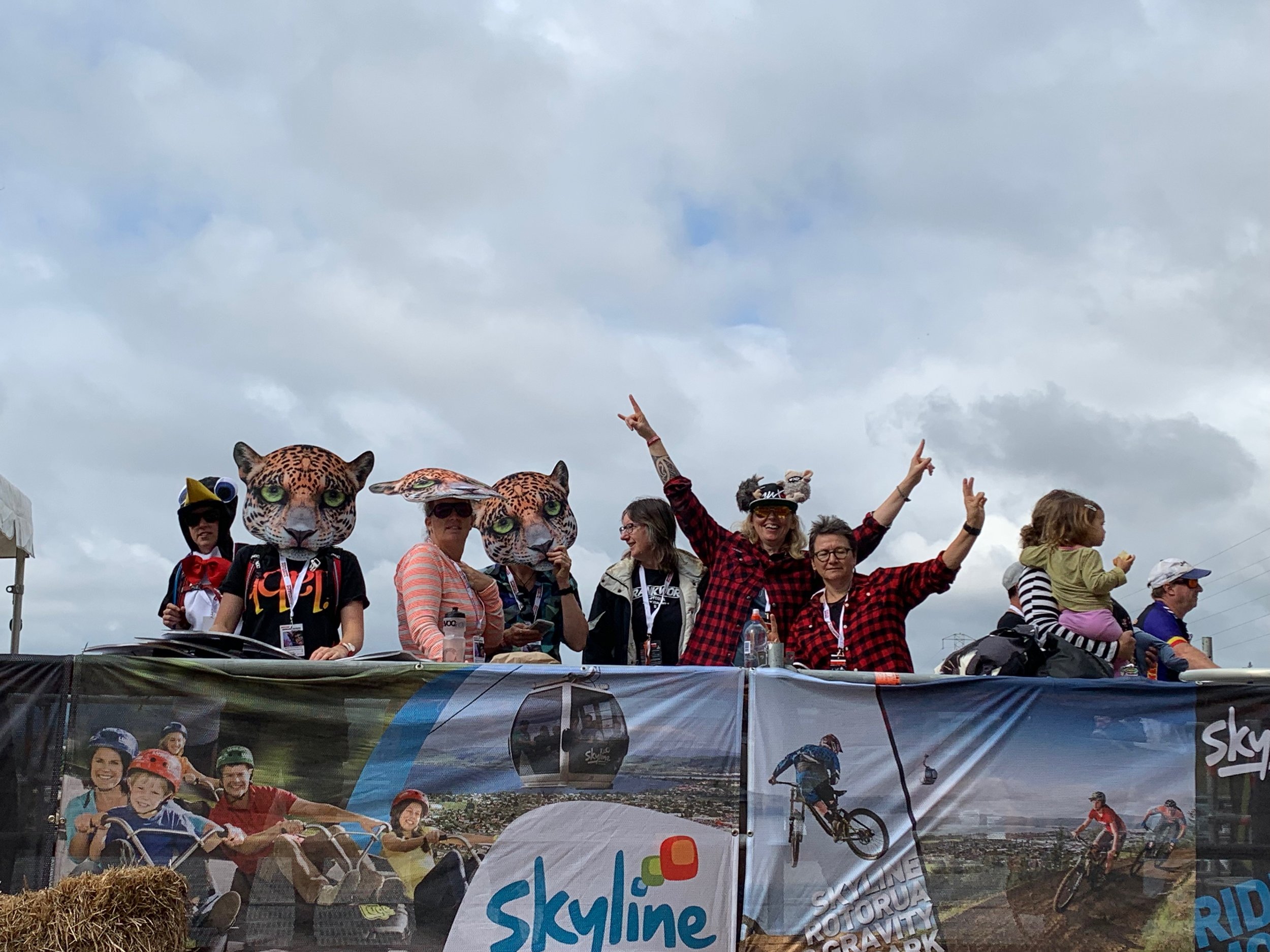

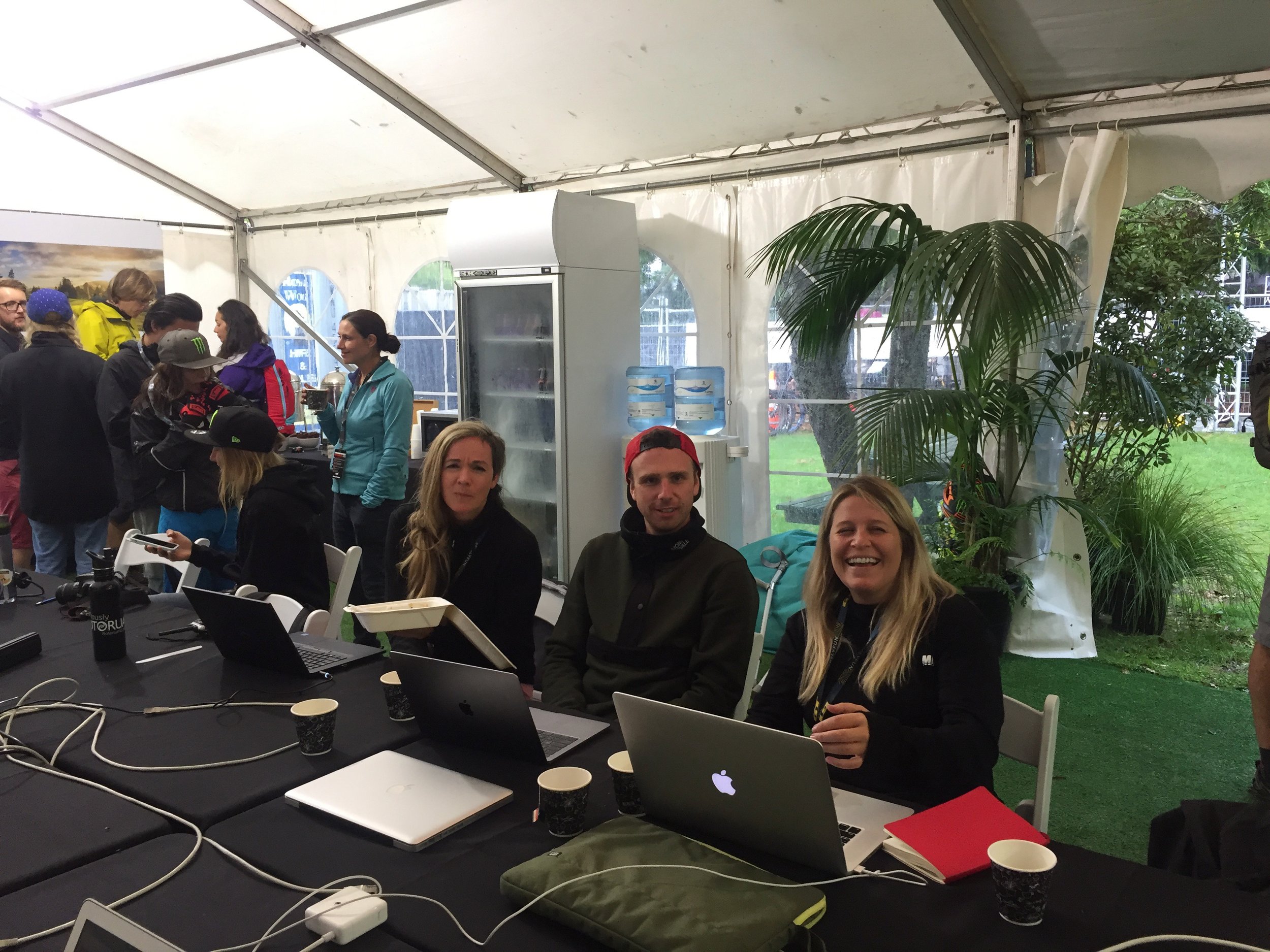
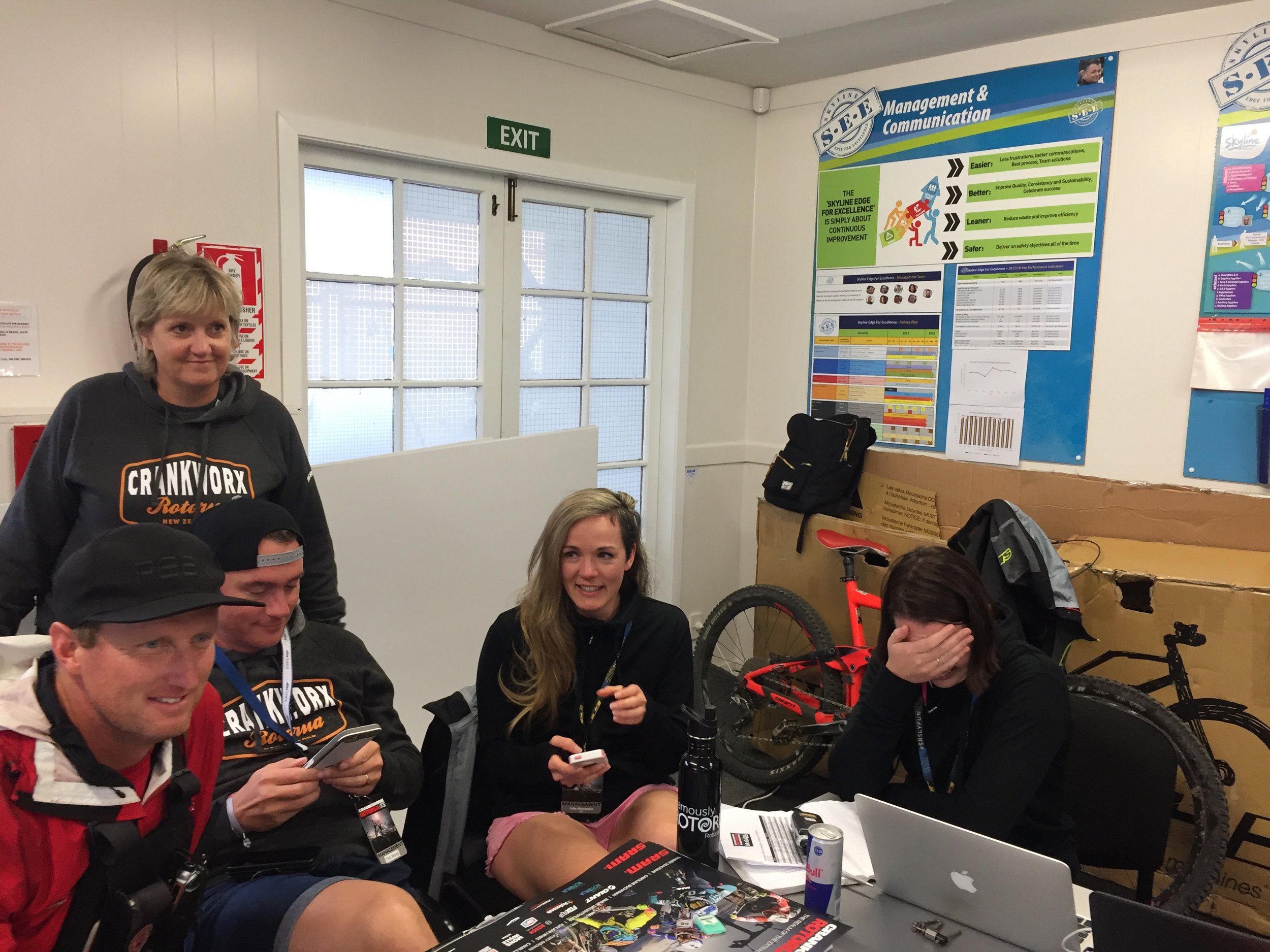
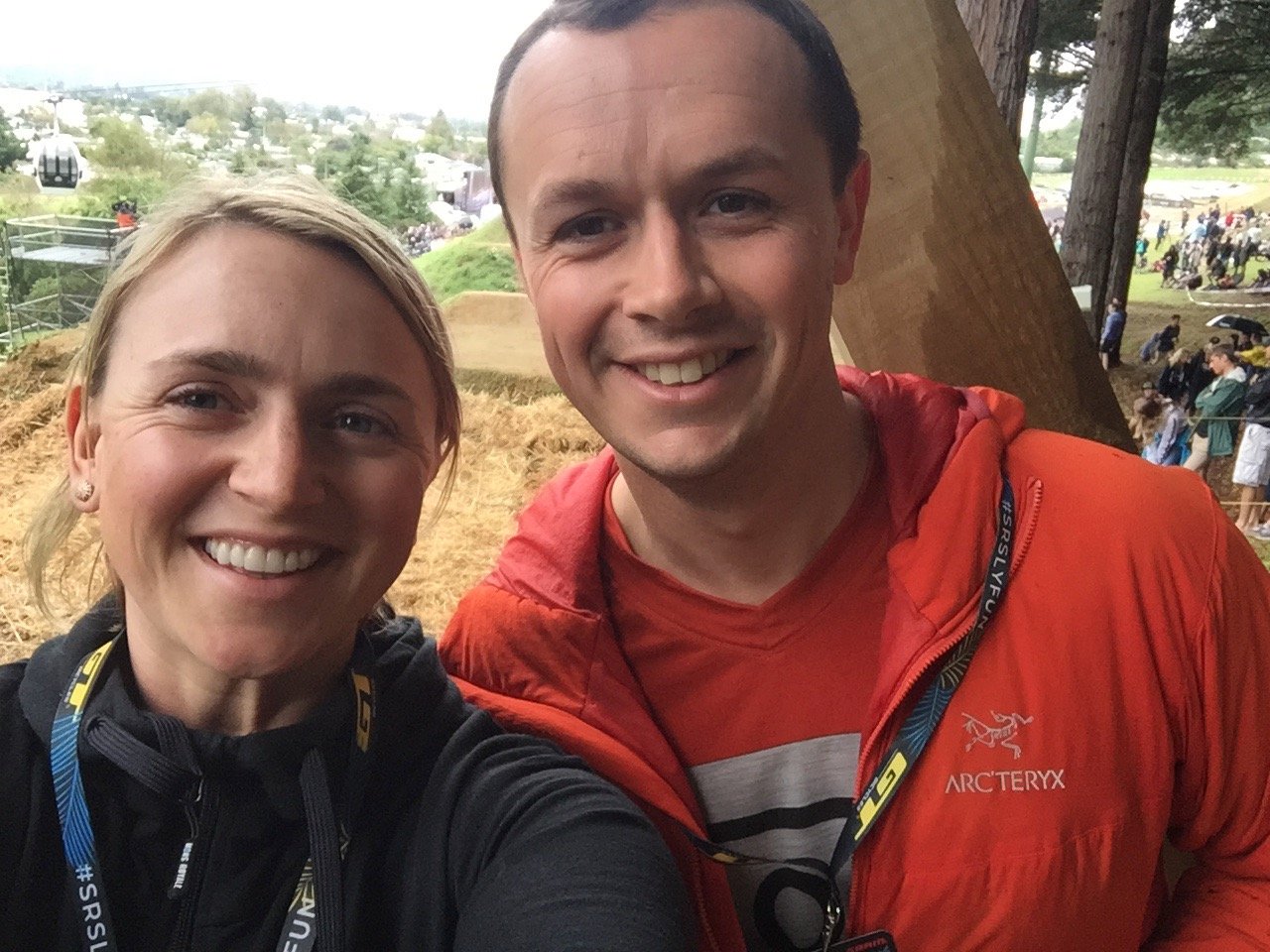
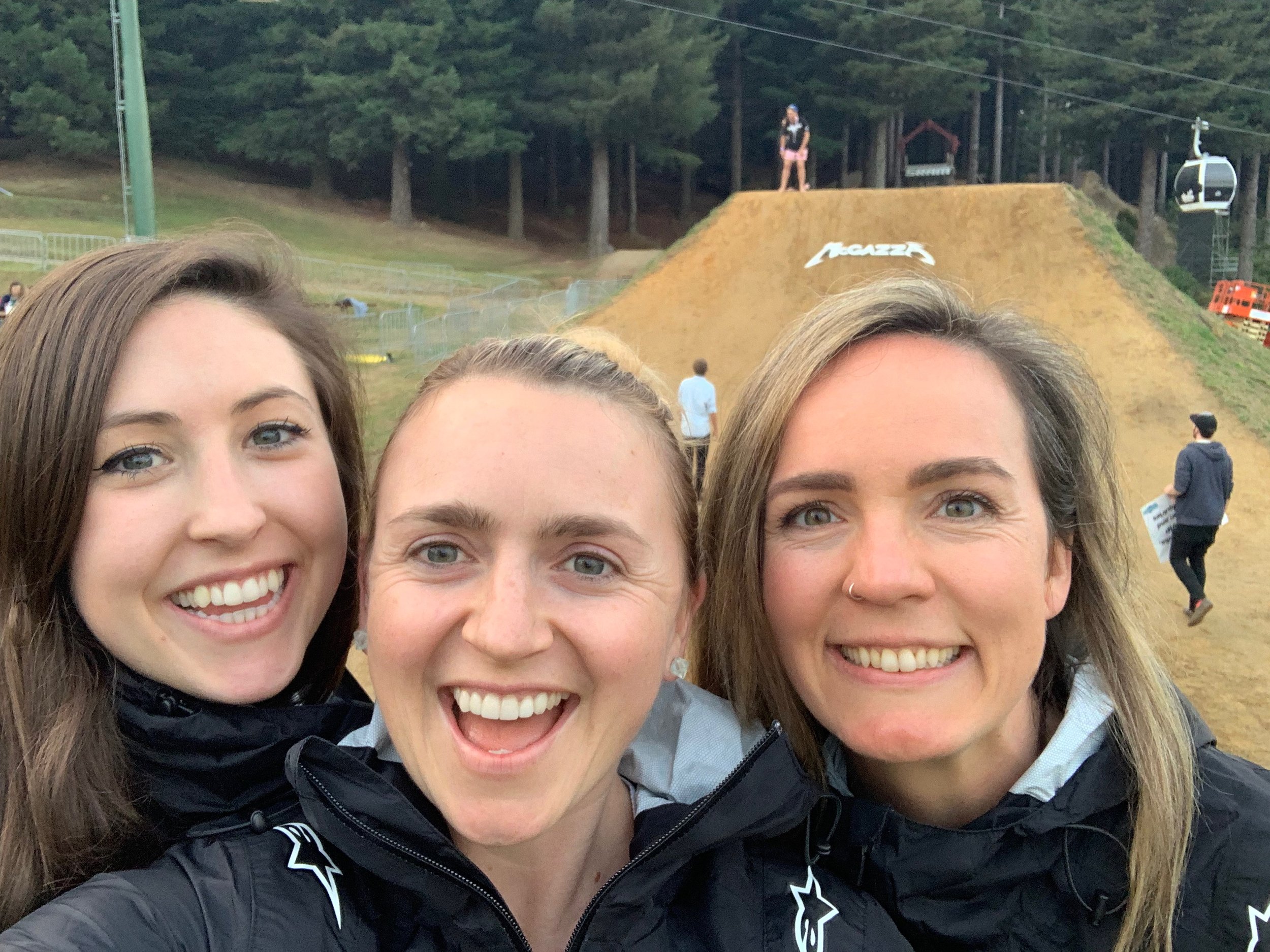


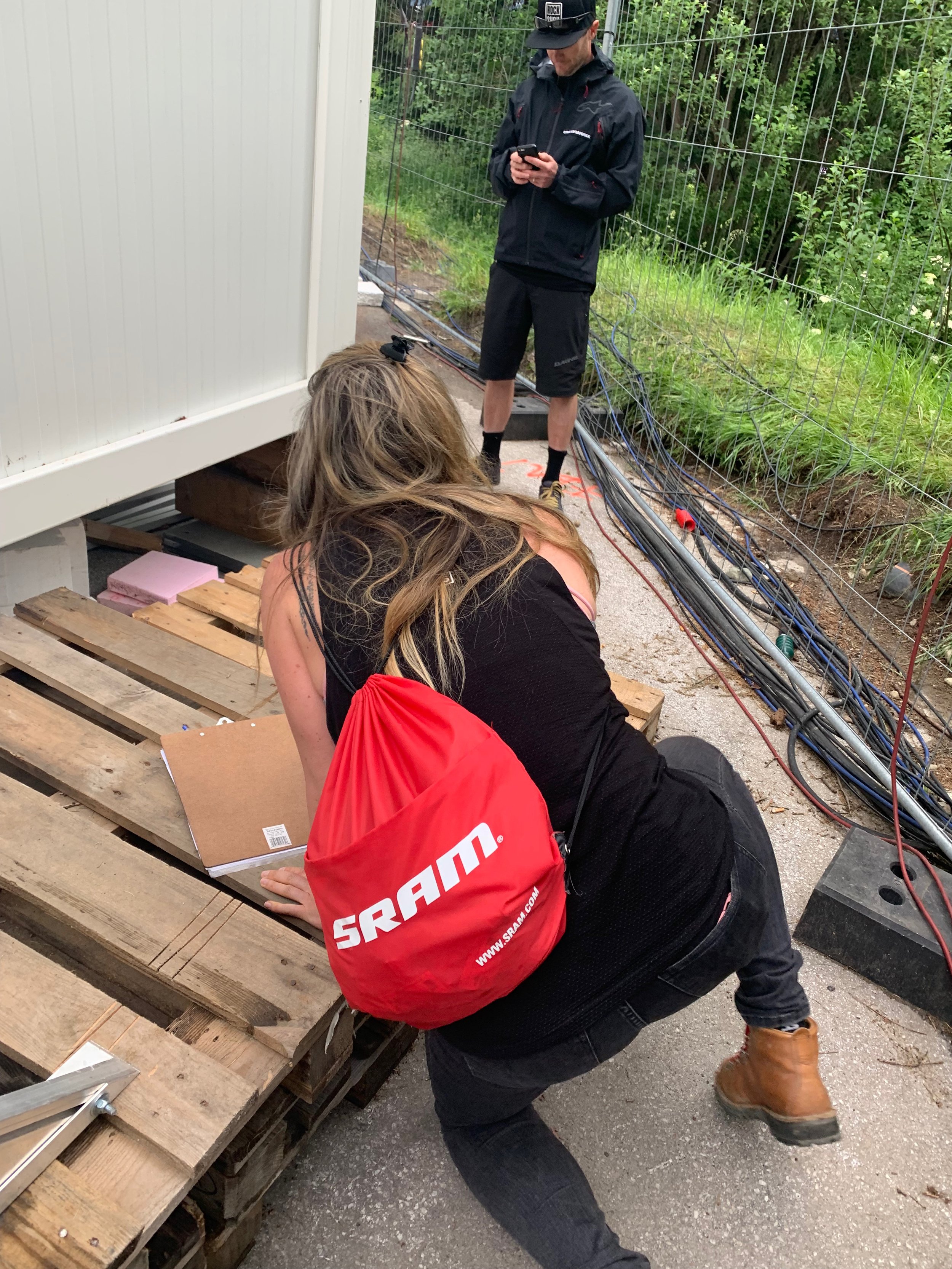



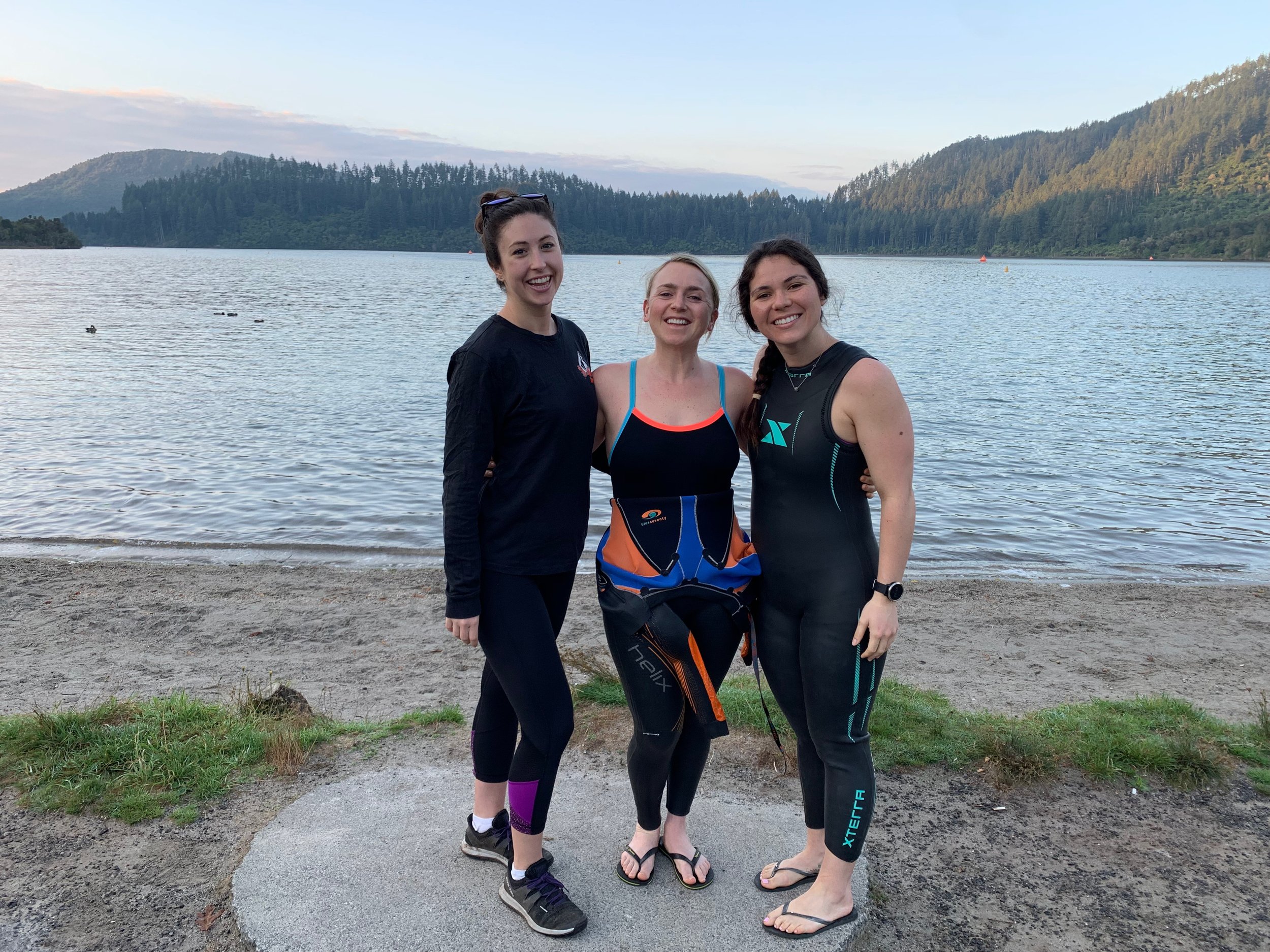
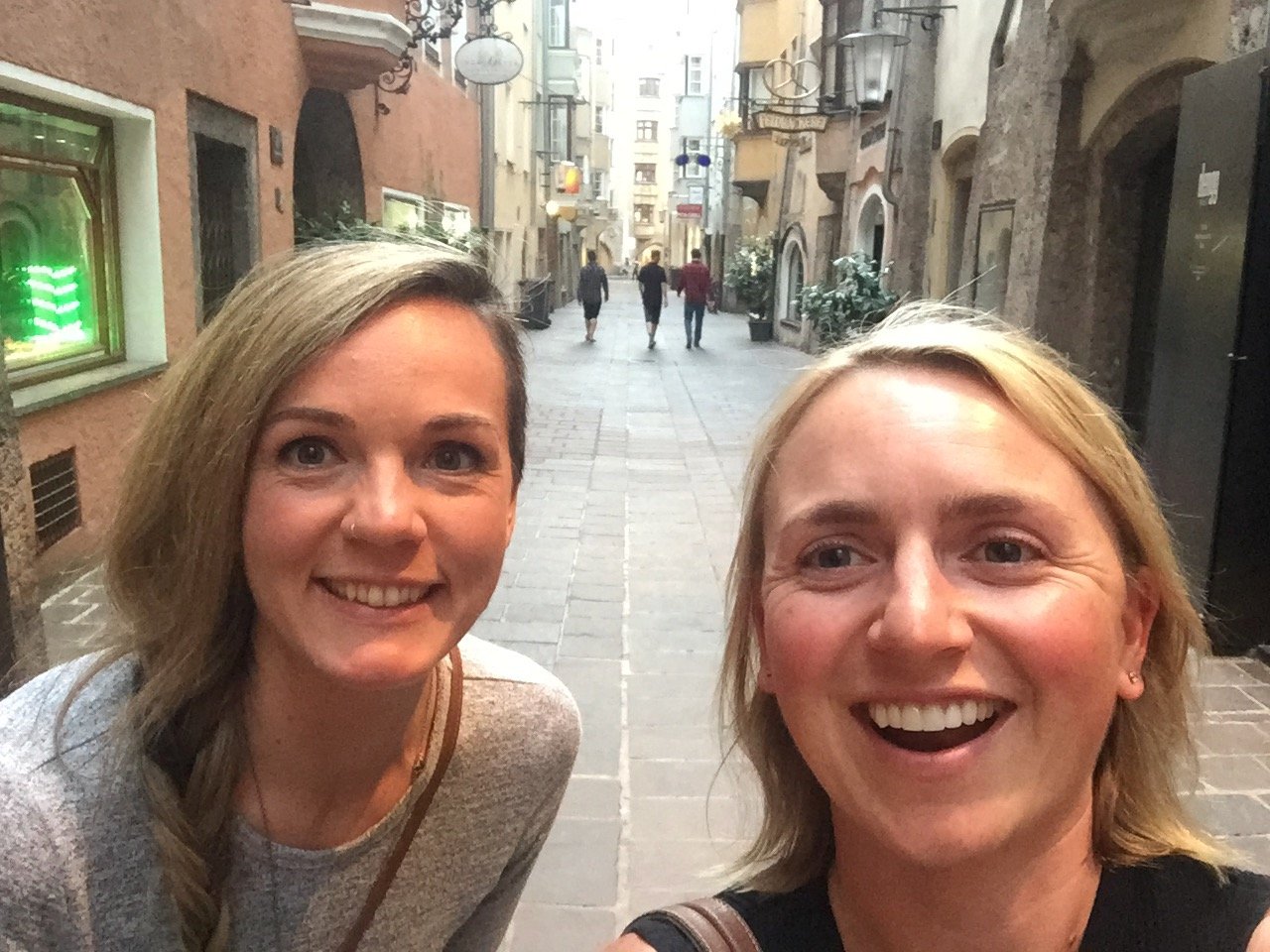
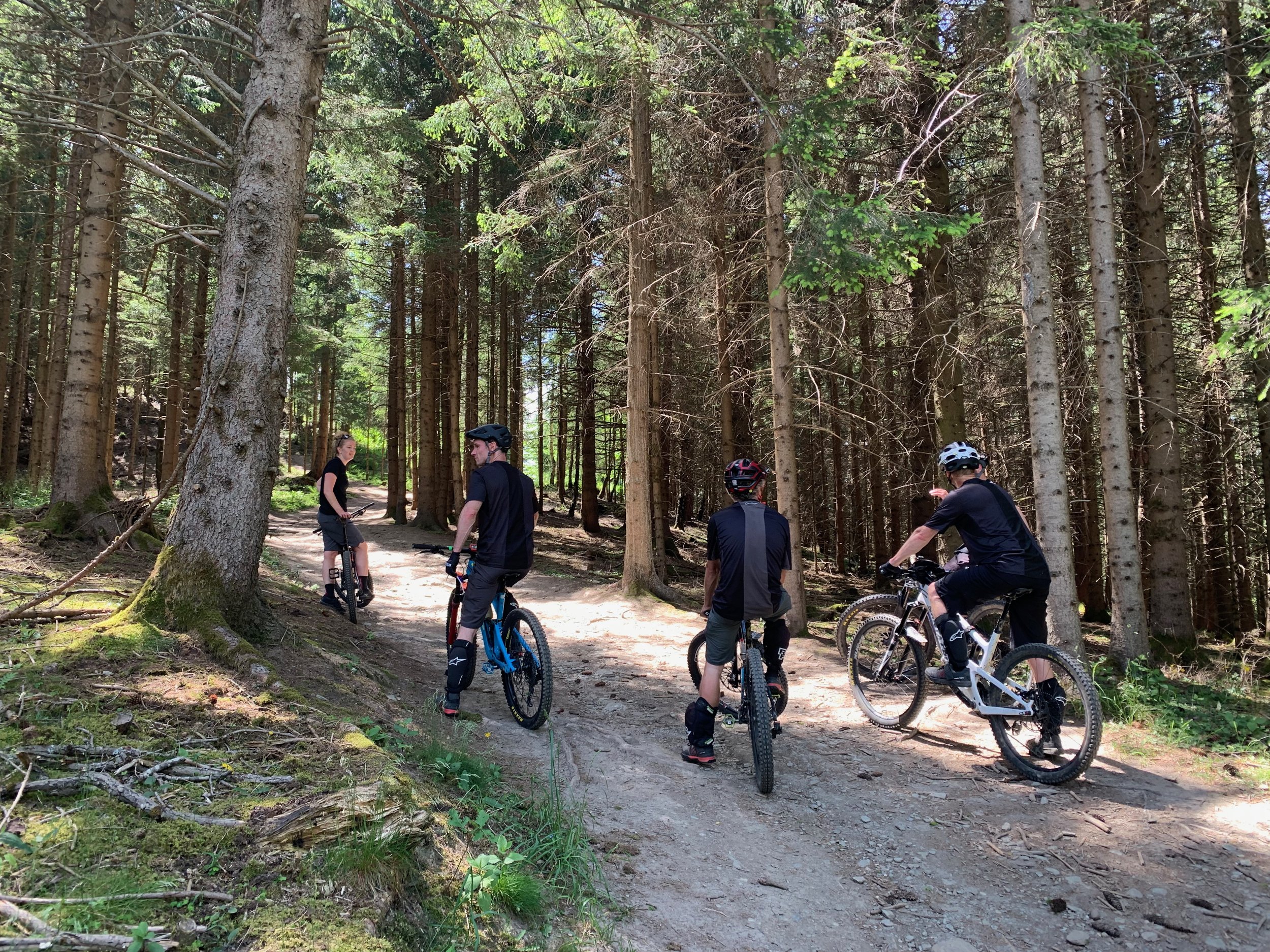





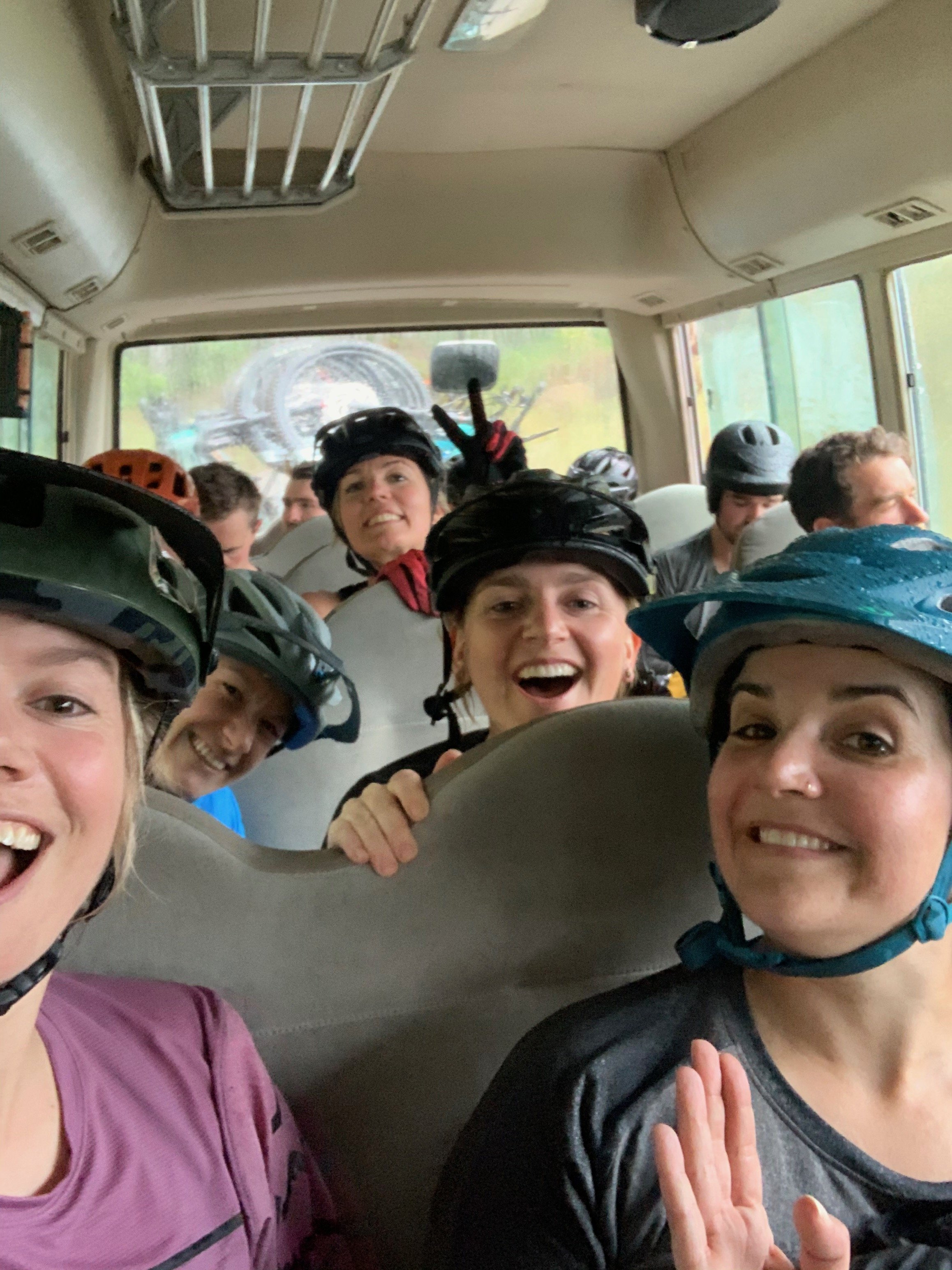
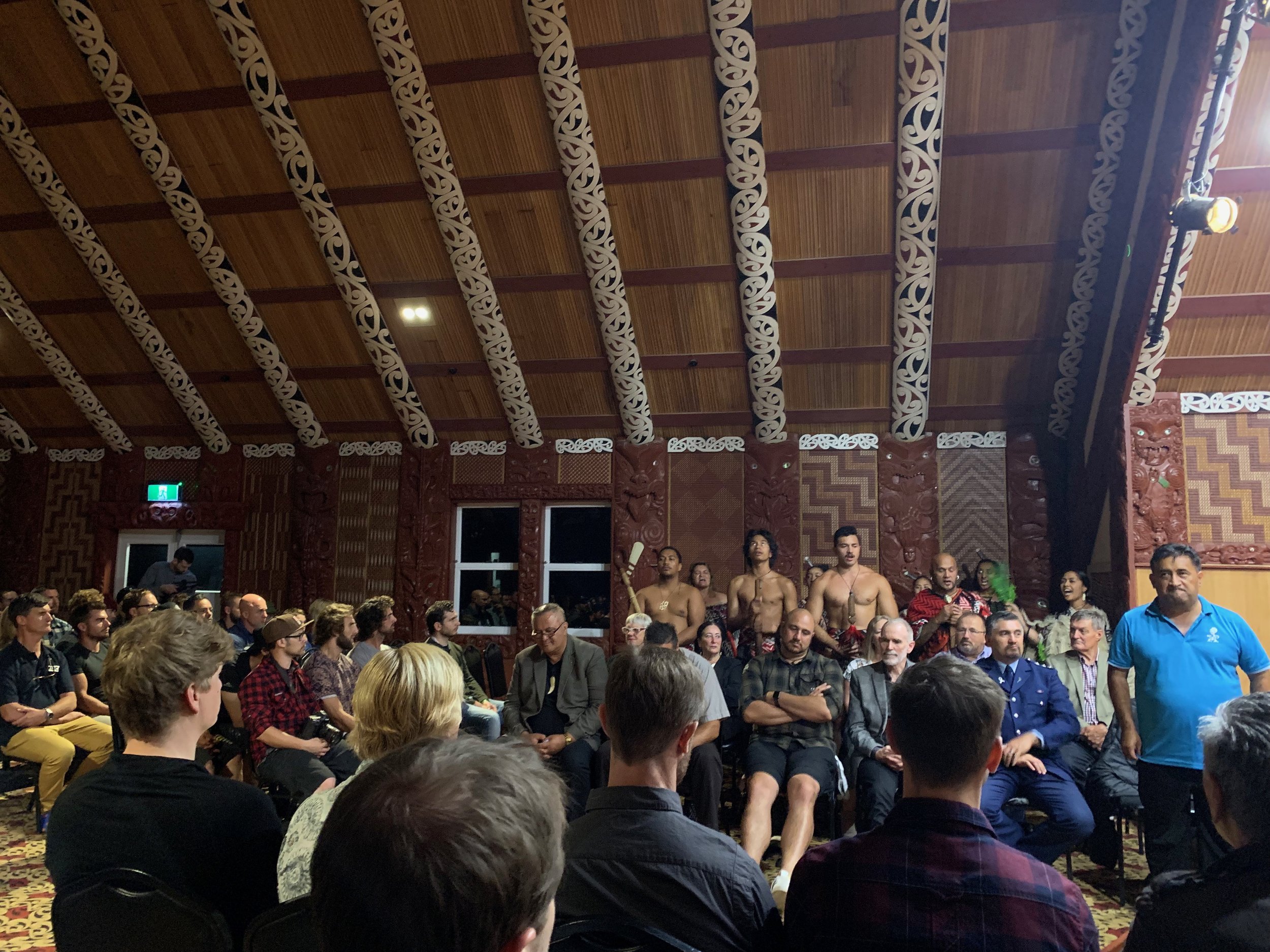
I’m incredibly honoured and humbled. The MTB community has been like family. I’ll certainly miss all of our teams, volunteers, photographers, producers and dream makers. To all of you, thank you. I’ll be waving wildly from the spectator zone. On to new things in new places!
Why Your Facebook and Instagram Ads Are Not Working Anymore
I was on top of the world. All of my social media tracking pixels were firing, customer data beautifully synced up with my Business Manager and conversions were happening consistently for a sweet price. Then a global pandemic and the iOS 14 update rolled in. Everything changed. My Cost Per Click (CPC) went up and my conversions went down. Yikes! As I scoured forums and industry sites, I discovered I wasn’t alone. Here’s what went down:
COVID brought the crowds online.
Almost overnight, businesses that thrived in an offline setting had to find a way to make money virtually. Many in the outdoor, event and tourism-driven worlds had to pivot to work on website redesigns and set up e-commerce options to ensure they were still getting a piece of that revenue pie. This drove up competition in the ad space, especially on social media.
What this means:
To get through to your fans and followers, you’ll need to be extra clever. Find new ways to stand out on Facebook and Instagram.
But how?
Test your Facebook and Instagram post lengths. Even Dynamic Ad formats allow for long format posts now. Smaller or bespoke businesses have a chance to resonate with consumers by treating posts like small blog pieces. More and more consumers feel compelled to read below the fold (aka “Read More”) prompt.
Another option: Brands of all sizes can make an impact by testing solely using video creative in ads. You can also create custom videos for each placement all within the same ad set. No video? No problem. Moving images or combining photos into a slideshow through Business Manager’s Creative Hub can show a significant lift in ad engagement.
Custom Audiences have fallen flat.
The iOS 14 update shook the entire landscape. Entire data sets are now irrelevant because the tracking pixel Facebook/Instagram uses isn’t working across all devices (we’re looking at you iPhone). This means the Custom Audiences you created with your email database, offline events or website traffic have shrunken and may no longer be helpful in targeting.
What this means:
Have a little cry. Morn the loss of all your fabulous Custom Audiences and move on. It’s time for all of us marketers to dust ourselves off and get back to work. With the advent of GDPR, CASL and other pieces of anti-spam legislation we should be respecting people’s privacy as a best practice anyway.
But how?
Return to the tried and true interest and geo-targeted audience building. Test what your consumers are actually responding to and rebuild audiences from the ground up. I’ve seen my CPC drop significantly after A/B testing my older Custom Audiences with new interest-based ones. Users are on these social platforms, we just have to start fresh.
If nothing else, it’s a great reminder to diversify our marketing mixes and experiment with other lead generating activities. It always rings true: social platforms are essentially rented space.
Your fancy mid-pandemic website refresh may have changed the purchase path.
Maybe it’s not a Facebook or Instagram problem? If the journey to purchase is harder or different on your website, people may struggle with change. Focus on guiding people to a purchase once they’ve clicked through to your website from the ad. It’s best to use an analytics platform (Google Analytics is my preference) to decide if these website changes helped or hindered. A cool place to start is by reviewing website traffic through “Users Flow”.
Toggle the drop down from “Medium” to “landing Page”. This will give you an idea of where people are entering and leaving your site. This is a super helpful tool to identify what web pages aren’t pulling their weight.
To summarize: Fear not. As marketers, our industry is constantly evolving. It’s what keeps us coming back campaign after campaign. Just as one FB/IG door closes, another will open. I’ll leave you with some wise words from an article recently written by Adweek:
“To cut through the noise, it’s helpful to separate the ultimate objective from the tactics. The objective for marketers is always to establish and maintain a relationship with customers and engaged prospects, today and into the future. Smart brands, particularly consumer-facing companies, appreciate that such relationships are their principal enterprise asset.”
Stay Current, Marketing Friends
When I teach marketing courses, students often ask me how to stay current in marketing. To me, there isn’t a single source for news. But, I do have a few favourite podcasts, newsletter subscriptions and education resources that I recommend. Some are less than traditional but help spark creativity. Others are tried and true. Here are my top picks:
Great Podcasts
How I Built This aka HIBT
Although not marketing specific, each episode is incredibly engaging and inspiring. HIBT host Guy Raz interviews founders of heavy weight companies that have or will leave a profound mark of excellence on their respective industries. When I need something interesting and uplifting, HIBT is my go-to.
Two succinct and incredibly knowledgeable British lads take us on a 20-25 minute journey into the marketing world on a regular basis. I’m a new listener but already a big fan. These guys are great at starting high level and working their way down into the technical details.
This colourful podcast has it’s roots in the digital nomad lifestyle but is chalk-full of practical information about sales and marketing, especially for SAS companies. My friend and Technical SEO master, Jase Rodley recommended it years ago and my husband and I have been hooked ever since. Just a head’s up, it can get pretty nerdy, but the info is hyper-current. I especially love this recent episode about improving sales funnels with special guest John Ainsworth of Data Driven Marketing.
Superb Email Newsletters
This delightful newsletter is both witty and useful. The Hustle is an easy read. It keeps me in the loop of what’s happening in technology and business across North America. Don’t miss this one, it’s gold.
I have a complicated relationship with social media. But as a marketer, it’s crucial to be aware of what’s happening in this landscape as it all changes so quickly. Often, I just skim headlines from Social Media Today’s newsletter and that works well for my needs.
If brand campaigns are part of your scope, Adweek is a crucial resource. See what’s trending and bombing in big brand land. I love getting ideas by reviewing what agencies are dreaming up at the moment. Plus the journalism is refreshingly honest. For example, “Nike Wants You To Play New Sports Even If You Suck At Them”.
Marketing <> Analytics Intersect Newsletter
This one’s special. Cerebral and articulate, I reserve these newsletters for quieter periods when I can really sink my teeth into the concepts Avinash Kaushik has on tap. As a big deal at Google, Kaushik kindly offers a free version of his newsletter focused on advanced analytics concepts about ten times a year. Perfect frequency for me.
Continued Education
New Google Skillshop and Facebook Blueprint Modules
Checked back in with Facebook and Google Product to see what’s new in thier certifications. The programs are so wildly robust now. Expect, webinars, learning tracks and web-based classes for all types of marketers and developers. It’s fantastic. I’m really into:
Yes, ultimately this company is trying to sell us their enterprise platform. But, Hubspot has made some incredibly helpful marketing guides and templates in the process. I wouldn’t hesitate to spend the time and take these courses (they’re also free). A great example: How SEO Works for the HubSpot Blog: The Search Insights Report Framework.
What other marketing resources are cutting through the noise and grabbing your attention? Drop a link in the comments:
Membership Marketing: a How To Guide
"...The market favours recurring revenues and narrative over transactional revenues and EBITDA." - Scott Galloway
Memberships are big.
Yes, businesses love recurring revenue.
Who wouldn’t love it, as a customer, to receive value on an ongoing basis?
But during the pandemic, the already declining brick and mortar contingent went into overdrive to get online and stay in business.
Companies that relied on foot traffic had to entice people to make purchases with them regularly online. “We saw a three-year adoption cycle get compressed to three weeks,” David Rusenko, head of e-commerce for Square (a major mobile payments company) said in the early days of the pandemic. So how do we market to these customers and keep them coming back? Enter membership-based businesses. While not a new concept, it’s certainly seeing a renaissance.
What is a membership-based business? People are often surprised to learn how broad the term membership can be. Everything from streaming services like Netflix, to gyms, to Costco are all included. If money comes out of your account in order to access goods or services on a monthly basis, it’s probably a membership.
Recently, I took an informal poll on my social media channels. I made some interesting discoveries. I asked people if anyone had a membership that they love. Here are some findings that will hopefully help your membership-based business stand out from the noise.
There’s a Certain Cachet…
People take pride in associating themselves as members of a particular brand or experience. Think of the phrase, “you are what you eat”. In this case, you are what you’re a member of and this is true both online and off. Establishing a consistent and polished brand is important to this customer base.
The social component of Strava is like word of mouth on steroids. Entire social groups felt compelled to fork out the cash for a smart trainer and in some cases a new bike just to join in the fun.
2. Make It Irresistible
Incentivize natural brand ambassadors. Give current customers such a good experience that they want to share. Influencer marketing or top user rewards would be a great way to reach this customer base.
3. Word of Mouth
Social Proof reigns supreme. In the early stages of brand awareness almost 40% noted that someone they trusted (personally or as a public figure) made mention of the product.
Brand recognition: One user started noticing the boxes Thrive Market delivers goods in and Googled it to learn more.
4. The Purchase
A pattern emerged with online customer journeys. Of those surveyed that could recall their purchase decision making journey, the most common path is as follows:
Word of mouth - friend, family member or someone trusted recommended the membership.
Search / social media search
Retargeting on social media
Discount or offer closed the sale
The most popular membership listed: Peloton.
5. You Heard About It Where?
Podcast marketing dominated the poll. Both branded podcasts and mentions of a business on popular podcasts regularly converted people. Social media is and will continue to be a major marketplace for businesses to be seen. However, just as people need to see a product multiple times (7 on average) before converting, these other marketing initiates were also top converters:
Email marketing
Physical product placement in places such as hotels or AirBnBs
Dominating search results
Offering exclusive content, discounts or products behind a paywall
Of the 40 people that responded to my amateur poll, the age range was 28-75 and included both women and men. Curious about what memberships made the list? See the word cloud below:
While the concept of selling a membership isn’t new, the global pandemic has certainly forced some creativity into the space. Both from a product and a marketing perspective. Know of a new business that’s thriving with a membership product? I’m always curious. Leave a note in the comments!
COVID Creativity - Crankworx Watch Parties
What we learned from pivoting our marketing during the pandemic.
Shortly after returning from Crankworx Rotorua the world shut down. COVID-19 closed borders, tourism, just about everything around us. It felt like our Whistler-based Crankworx team made it back into Canada from New Zealand on one of the last operating flights.
The Marketing Opportunity
When our festival slated for June was postponed, plans shifted quickly. Crankworx now had an open opportunity to entertain and engage fans. Translation: we now had an impending large gap in our website and social media metrics and it was approaching quickly.
Typically, a new campaign would call for fresh content. However, amid the pandemic, budgets were tight and heavy restrictions on travel/riding created a challenging environment for athletes to tell fresh stories.
The widespread reach of COVID-19 in March kept us on our toes. Crankworx Innsbruck’s June dates didn’t stand a chance.
The Goals
Fill a need period across Crankworx communication and marketing channels
Drive an increase in website visitation for Crankworx.com
The Solution
Crankworx Watch Parties: re-airing a collection of milestone broadcast events from our archives with a social element. These broadcasts debuted on a weekly schedule on the Crankworx YouTube and Facebook brand pages and were cross-posted through PinkBike’s Facebook page. To layer in an extra level of engagement we enlisted featured athletes to join in the live comments for a bit of banter and behind the scenes insight.
Partnering with our PR Manager, Julia Montague, we repurposed our festival promotional channels to get the word out about each of our Watch Parties. This included:
PinkBike Post and promotional splash
Basic social media asset kits for athletes, festival location partners, media and sponsors
Crankworx.com Blog Post
Newsletter
Photo archive social posts with behind the scenes teaser content leading up to each broadcast on all social channels
Crankworx.com to simulcast broadcasts
Note: Uniquely, no paid advertising across social or search channels
This campaign was almost entirely reliant on the features Facebook and YouTube offered for engagement.
Marketing Hurdles and Learnings
Pivoting our campaign around a Facebook feature (Watch Parties) posed several challenges. The functionality wasn’t quite the right fit for this campaign but we couldn’t have anticipated it before launch. Many of Facebook’s features can’t be tested prior to alerting our entire fan base. We had to debut broadcasts and work through issues on the fly. For the future, YouTube might be a better platform as it doesn’t impose as many requirements on the viewer and is more of a natural choice for fan conversation.
Athletes struggled to join our Watch Parties on Facebook with their Public Figure accounts. Future campaigns need to focus on making it really straight forward for our highlighted athletes to join in the conversation. Their participation enhanced the broadcasts ten-fold.
Debuting the Watch Party in multiple places caused confusion and splintered viewership.
Music rights required some of our earlier broadcasts to be trimmed down to comply with Facebook and YouTube’s standards. We created a dummy Fan Page on FB to test the uploads and Watch Party features as these seem to be constantly evolving.
Results
To benchmark these Watch Parties against one of our traditional festivals would be a mistake. Imagine, tallying up the avalanche of fresh content, video views in the millions, high-end production plus the gravitational pull of global distribution partners. Our Watch Parties wouldn’t be able to touch the metrics we have come to expect. Apples to oranges.
But, looking through the lens of filling a period that wouldn’t otherwise feature fresh content and metrics move into the green. Based on average growth and impressions in our off-seasons of 2019 and 2018 Crankworx experienced a 3% growth in its social fanbase. Engagement skyrocketed to 70% above standard outside-of-festival activity along with Impressions coming in at 60% higher than average.
Crankworx marketing objective met and fans are stoked. Everyone wins.
Why it worked
The pandemic was the perfect storm for promotion. Viewers and media outlets alike were hungry for content.
Nostalgia gets the best of us. Not only did our fans tune in to the Crankworx Watch Parties, but suppliers, athletes, and the majority of the Crankworx family watched from home to reminisce over the cool moments in our company’s history. It pulls at the heart strings.
Time was on our side. Unlike the chaos of preparing for a festival with many moving pieces, we could focus squarely on this project. Getting fans, locations and endemic news outlets to work in harmony to promote each Watch Party.
Pooling current resources allowed us to grow and engage our fanbase without a large financial commitment. This allowed us to be experimental and flexible with how the campaign evolved.
What we Discovered
We Don’t Need a Pandemic to Keep The Party Going.
Crankworx Watch Parties could be an elegant on-going solution for off-season engagement. Pulling from the archives and adding a social element like athlete commentary make this a great campaign option for any company with loads of archival footage and active influencers.
Teaching Digital Marketing for BCIT
Learnings from teaching university level marketing
It’s been over 10 years since I closed the chapter on my undergrad marketing studies at the University of Denver. Whether it was serendipity or plain luck, shortly after graduating I landed an internship in Lake Tahoe working for a company that was noticing a new sector emerging in marketing: Search engine optimization and social media management to help businesses get more website traffic. This brave little company was on the crest of a wave of modern marketing and I was lucky enough to learn how to paddle in with them.
I still felt like a student.
Several awesome companies and roles later, I found myself standing in front of my own university-level class, as the teacher.
Earlier this year, BCIT and the team behind its satellite campus, the “Whistler Learning Centre” recruited me to curate a mixture of traditional marketing theory and current digital marketing techniques. Honoured and intimidated all at once, I poured over the construction of my dream curriculum for digital marketing. Our class was chock-full of lively discussion, brain-stretching questions and what my colleague often describes as “growth opportunities”.
A couple of big hairy questions came up as recurring themes during the course that I think every marketer should hold a mirror up to and look at regularly.
Am I applying too much of my own bias to my business’s marketing?
Probably. Create marketing personas at the start of your journey to understanding your customer. As your marketing matures into digital channels offer up the segmentation to machine learning in areas like Facebook/Instagram ads or Search and Display.
More reading: Avoiding Psychological Bias in Decision Making
Am I still reading about what’s current?
I’ll admit it. I was hitting delete and snooze repeatedly on my go-to marketing news outlets until recently. When I used to work on a larger marketing team I used to spend the first 15 minutes of my mornings reading about current trends to see what we could take advantage of in our marketing. Prepping for this course has reminded me, there’s still plenty more to learn about our field.
What am I measuring?
It’s really easy to get lost in the weeds of vanity metrics like “Clicks”, “Shares” and “Followers”. Just because our profession has merged with the web doesn’t mean we shouldn’t be trying to solve for profit with every marketing campaign. Figure out your KPIs and get cozy with Google Analytics.
Google Analytics Guide for Beginners
Want to join me for an upcoming course? Drop me a note, let’s chat!
Prioritize This. Q & A With Jase Rodley
Searching for Work-Life Balance? You might be focused on the wrong goal.
In a year of hectic and competing schedules, I’ve found myself tucking into work-life-balance content more often than I’d care to admit. I’m that audience member that jumps straight to the “how do you find the time?” question at all the networking and panel discussions. And while being “that person” isn’t necessarily bad, I might be hyper focused on the wrong question. What if achieving balance isn’t the benchmark?
I’d like to introduce you to a dear friend, Jase Rodley. I asked Jase to give us his working title and he confessed that he has trouble finding appropriate labels for himself but the most consistent are along the lines of Dad, expat, SEO consultant, traveller, marketer and investor. I’d add athlete to his list of labels as he’s just recently completed an incredible trail race in the mountains surrounding his home in Andorra. With an ever-expanding title, Jase is certainly no stranger to the work-life balance discussion. But his stance may surprise you.
Get to know Jase:
Q: First, Tell us about the trail race you recently completed:
My first trail running event ever was Skyrace Arinsal in July of this year. My event was 15km and 1,415 metres of positive elevation gain. It's not far from home actually, with most of the event taking place on a ridge line that starts behind where I live in Andorra.
Distance-wise it doesn't seem too difficult but the course itself is technically challenging. The climb up involves slick rocks, root and some mud, then large rock slabs that you need to hop between. Somewhere around 2700m there is an actual rock scramble/climb. I was ok getting up that section but I had to give a few of the shorter runners a hand here and there.
Descending is equally as tricky, with a steep, loose and dusty section, then through some slick tall grass and wet, slippery rocks. If that wasn't enough of a death trap, you later get to finish off the knees with some large "step downs" among the rocks.
The views are spectacular though - I know it's not a bad place to be. The flatter meadows on the descent are beautiful and running past horses is pretty cool.
Q: What was going through your head during the last five strides before crossing the finish line?
Hubris mainly. I had plenty of moments of "mental ruin" during the run, but knowing the end was near I remember thinking "I could have run further".
Q: Why did you sign-up for the race?
My wife gave birth to our first child in February this year. When she was 10 weeks pregnant with him, she ran the 10km/750m positive gain Andorra Solidaritrail, which was an amazing achievement in my book. She wanted to do the event again, 5 months after giving birth. I knew that would be difficult, so choosing to do something difficult seemed to be the best way I could think of supporting her. The theory was my training would motivate her to go out and run on the days where she was low on energy. I'm not so sure the theory panned out but we both finished what we set out to achieve.
Q: Will this race or races like it become an annual thing?
I don't know. I've decided to do the Skyrace Arinsal again next year, some 16 minutes quicker. I love running on technical trail - to me it's like mountain biking but a pair of shoes are much easier to transport around the world than a bike. The problem is, I don't enjoy any other type of running. Running on the flat sucks. Running uphill sucks. This and I'm torn for time - running is crazy time consuming.
What I like about these types of events is that they're designed to be hard. So trail running in itself is a difficult thing to do (at least in Andorra where almost everything is steep). I'm lucky in that I have a fairly good base level of fitness, but where I need to train is my mental toughness. "Pissing with rain? Go for a run. Sore from squats? Go for a run. Terrible sleep last night? Go for a run. Snowing lightly? Just get on with it and get it done buddy." This event got me out of the house on days when I otherwise wouldn't have gone outside.
Q: Do you cross-train? If so what else do you through in the mix?
Yes, I lift 3 days a week Stronglifts 5x5 style, then do some accessory stuff and functional movements to "manage" past injuries. Usually I'll do some rowing before lifting (sprinting, not meandering) and when I can't be stuffed running a half reasonable distance I'll do 10x50m hill sprints (I live around 1350m above sea level) and tell myself that's a hard days work. In theory I'm a mountain biker too, but this year was ridiculous for riding bikes - I built a brand new bike and must have ridden it a dozen times. I just didn't have enough hours in the day.
Q: Name three areas of your life that you're fired up about:
I'm going to be a difficult interviewee here and come in with my 4 priorities (instead of 3). For me, life generally breaks down for me into health, family, wealth and adventure. Anything else is not a priority.
You'll note here that "competitive events" is not a priority. In theory it could improve my health but I think we all know that competition causes plenty of injuries. Just because something isn't a priority doesn't mean I'm not interested, just in this time-poor period of my life, I need some constraints. If it doesn't fit in these 4 boxes somehow, chances are my short-term answer is "nope".
Q: ARE THESE PRIORITIES YOUR PASSIONS?
I don't see these four priorities as passions. I'm passionate about super-slack short travel all mountain bikes, amazing mountain views, Porsche 911s, Datsun 510s, foods with high calorie counts and so on. Anyone who knows me well knows that I try and keep emotion out of the core decisions I make. To me, passions are often fleeting, but true priorities persist.
Q: DO YOUR PRIORITIES EVER OVERLAP? IF SO, HOW OFTEN?
Yes, absolutely. Without my mental and physical health, I'm useless to my family, will find it more difficult to build wealth, and adventure will have been a dream long since passed. Wealth helps me to provide for my family, but this is more closely tied to freedom of time than all out money. I don't want private jets and 10 Lamborghinis, I want freedom of time which feeds back into my family and my health. Adventures tie into my mental and physical health and give my family something to bond over. To me, they're heavily interrelated.
Q: How did you log training time with the other priorities in your life demanding attention?
Caffeine. Earlier this year I was waking up around 6:30am, running for around an hour and a half, having breakfast with my family at 8:00am. At 8:30am I'd begin working through until 1pm when I'd go to the gym, then have lunch and be back at my computer at 3pm until dinner around 7:30pm. I'd watch a TV episode with my wife then she'd go to bed early and I'd relish in the 9:30pm-11:30pm time bracket when our house was silent when I'd get an extra 2 hours of work in.
Pay attention to those times - anyone who has tried it knows it doesn't last. Leading up to the Skyrace I had some sketchy days at the gym, where I was dizzy during squats. When I would go mountain biking I was all over the place since my reaction time was way too slow, and my demeanour was nothing like usual.
If you want something bad enough, everything else comes later. I wasn't adequately trained for the Skyrace - because I didn't care enough. As long as I finished I was happy. Providing for and supporting my young family still took priority.
Q: What would a Venn Diagram of your priorities look like?
This is super difficult to explain in words, but for me everything intersects at freedom. All of my priorities create freedom for me in one way or another, whether that is a very tangible "freedom of time due to wealth" or the more subtle "feeling of freedom while sitting on a mountain top".
Q: Is a balance of passions in life attainable? Should it be?
Similar to my views on the overuse of the importance of passion, I'm also a disbeliever in balance, in the context of success. Semi-pro athletes usually work multiple jobs to pay their way through training, failing time and time again. They have no time for an incredible career, just as they have limited time for family and friends. The wealthiest people I know have or had such an imbalance it's not funny.
People are quick to judge and call this selfish, which just goes to show how misunderstood driven people are. Driven people have had to sacrifice everything that is not a priority to get what they must. That's a very hard thing to do.
I try and maintain a balance of a very small list. Outsiders looking in can see an imbalance, but for me it's much easier to balance 4 things I truly care about then 50 things I vaguely care about.
As for whether or not it should be attainable - that's up to the individual to take responsibility in working out their best plan of action.
The approach Jase brings to his priorities is refreshing. Setting impossible standards for ourselves as athletes, professionals and humans, is a recipe for disappointment. Share Jase’s outlook? Drop your thoughts in the comments!
The Common Thread in Marketing - Learnings From Conferences
What’s hot and cool things happening in marketing right now
I'm always on the hunt for what's new and trending in the marketing world. A few months ago I had the chance to look at marketing through both the mountain bike industry lens and on a broader scale. To get the lowdown, some colleagues and I attended DigiMarCon in Toronto, ON then a few short weeks later we hosted the 2018 Whistler Bike Conference, here at Crankworx HQ. Although they sound like opposing conferences, there were quite a few common themes that emerged. Here's what's hot in marketing this season and the people behind it:
Email Marketing
Digital Transformation Strategies – Derek Lackey
Lackey, DiGiMarCon speaker, focused heavily on the consumer journey through email to conversion. My key takeaways from him were, when it comes to email audiences, bigger isn’t necessarily better. Focus on quality. He suggests that it’s the messages consumers don't get that matter in communications most because of successful segmentation. A notable metric to measure in the the consumer purchase journey is intent. When tracking this metric on our own websites, respect a user and be transparent.
To read more, check out a couple of his interesting articles on the blog, Newport Thompson.
Marketing Automation - Emily Sloan-Pace, Zoho
Email sequences have evolved. They can be used for customer service, customer marketing (an educational drip), partner marketing (CRM specific), internal communications, recruiting and on-boarding. Sloan-Pace suggested a good place to start with autoresponders is to focus on the top performing traditional autoresponders: Back in Stock, Anniversary, Welcome and Complimentary Purchase Ideas. According to her research 77% of marketing autoresponder sends see a lift in sales. Some of her best suggestions for marketing automation included:
Write copy as if you are writing to one person
Sprinkle in personalization
Don’t try to sell to everyone aka segment your messages for higher success
Don’t ask for the sale until the 4th email in a drip campaign
Emails should be 80% content 20% pitch
Watch her full talk here: “The Art of the Autoresponder”
Social Media Marketing
Social Selling - Anita Windisman
Windisman focused her DigiMarCon session on the power of social selling and the idea that it creates a shorter buying cycle. If done right, it creates relationships which are more valuable than one-off sales. At the back end of a sales cycle customers tend to voice their opinions online, making social selling also about social listening.
Learn more about Social Selling by checking out this Forbes article: How To Win Business By Social Selling Via LinkedIn.
Facebook Advertising – Amanda Bond, The Ad Strategist
Bond, in my humble opinion was the best session of the DiGiMarCon conference, hands down. She guided us through the construction of Facebook and Instagram ads that target the major pinch points of the conversion funnel for customers. She asked the attendees to map out three stages of our buyer funnel from the data we have in social media audiences, email/CRM audiences and Google Analytics audiences. The funnel looked like this:
Top: Lookalikes of people that currently engage with our brand
Middle: People that currently engage with our brand
Bottom: People that engage with our website specifically.
In other words, leads that range from cool to hot. She had such a refreshing and goal oriented focus on ad spend that I left eager to map out our plan and test it on upcoming ticketing and awareness campaigns for Crankworx. Bond’s blog, The Ad Strategist, is a wealth of information on the topic.
The Social Advantage How to Start Demonstrating Social ROI in 4 Steps - Eva Taylor, Hootsuite
Taylor opened her session during Whistler Bike with a cool stat. “The adoption rate of 50 million people to Instagram took 18 months versus 75 years for the telephone.” Closing in on social media spending, she said that 80% of brands have adapted their marketing to include Facebook but only 20% are able to prove it’s worth. She explains that uncovering social media ROI requires some social media maturity on behalf of brands/companies. A key metric to review in our social media marketing campaigns is engagement. Engagement data can help us uncover:
Is the strategy working?
What content resonates with our audience?
How do we measure up against competitors?
Taylor suggests mapping social KPIs directly against business objectives. To develop a metric to measure return on investment, factor in:
Cost of tools
Time spent
Budget given
She’s written more about the topic on the Hootsuite Blog.
Brand Building
Storytelling - Jason Falls, Cornett
Falls makes some great points in his DigiMarCon talk surrounding the idea that good stories disrupt the normal. He suggest marketers think in terms of story arcs. The classic story arcs that can be adapted to tell any brand’s story are the following:
Cinderella (rise to prominence)
Fall from grace
Return to grace (a comeback story)
Weakness to strength
Path of discovery
Not all storytelling needs to be focused on the top funnel dreaming phase of your event, product or service. Falls asked the conference to consider telling stories that plot the journey of a potential buyer. Visualize how the buyer weighs the value of a product or opportunity through doing research or imagining themselves with the product. One of the strongest ideas he gave was to tell the story of a consumer's "Slide of Resistance". Address what commonly comes up as a hesitation to purchase and disprove that story. Keep in mind, the greater the purchase, the greater the hesitation.
Watch Falls in a recent HubSpot talk on “Hacking the Conversation”:
Building Brands for Future Growth - Meggie Hollinger, Google
Hollinger lead her Whistler Bike discussion by asking attendees to define what our core brand elements are and how we manifest them in our products. During her time working on Google Voice and Google Assistant she found that it’s important for companies to have a scalable identity. Like Google’s “G”. To get the entire company on board with brand guidelines she suggests creating a spec & asset management system for consistency. She then touched on the magic of using design sprints to accomplish large scale projects like rebranding. A typical sprint for Hollinger flows in these steps:
1. Assess “Lightning Talks” - uncovering the challenge ahead from all angles.
2. Sketch - user journeys and idea generation.
3. Dot Voting - to decide on direction.
4. Prototype - sketching out a vision or creating a video to bring others into the fold.
5. Validate - through user testing.
Hollinger has some innovative ways of capturing ideas to design a company and it’s products for future growth. Have a look at a few of her Google projects on LinkedIN.
The Power of Storytelling, Tapping into Community - Abigail Flora, Athleta
Flora drew from her time working on Athleta Girl to give Whistler Bike some strong storytelling advice:
First, lead with product driven storytelling. Integrate marketing into the process of developing products. During Flora’s most recent campaign for Athleta Girl, she designed the products alongside the consumer (feedback and R&D) – getting the sale along the way to completing the design process. She emphasized that consistency with storytelling across channels is key.
Second, Flora suggests rethinking the design process. Build marketing into the design. Many product features surprise and delight Athleta’s younger customers by incorporating hidden treasures into the garments such as thumb holes or pockets. Flora insists that the research is out there and easily Google-able. Get scrappy and integrate data driven marketing into storytelling for brands.
Head over to Marketing Dive. They wrote a fantastic article about a recent marketing campaign for Athleta Girl:
Tales from the Mosh-Pit, Applying the audacity of a punk rock mindset to your brand and marketing initiatives - Marc Morisset, STR/KE MVMNT
Morisset shot from the hip with the attendees of Whistler Bike about the evolution of his brand. His company fits a niche in the fitness market that is relatively new and chock-full of passionate customers. He reflected on the evolution of STR/KE MVMNT as a whole to tell a story that resonates with his customers long term. His advice to emerging brands is to be unapologetically awesome like the grassroots brands that were built from skate, surf and punk culture. To get the wheels turning he raved about getting our hands on The Brand Gap or the Designful Company.
Consumer Behaviour & Market Research
Critical Balance, Getting Ecommerce & Brand Building To Play Together - Adam Greene, SAXX
Greene joined us for Whistler Bike to explain the process his team uses for growth. He suggests starting local and then scaling outward by creating communities around the brand.
From a technical perspective he favoured leading with data. Try reviewing transaction data to identify frequent buys and sort them based on zip code. Then overlay customer locations based on the given zip code in Google Earth to find where to place retail areas. Such a brilliant way to blend owned and public information to create a sales funnel based on concentration.
Greene’s team can then infer where to host events, purchase out-of-home, print and digital marketing by mapping the highly concentrated areas of customers. Greene’s major takeaway, is that data transparency is key.
See what Greene has in-store for the direction of SAXX in a recent issue of MR. Magazine. Or watch the campaign video here:
Purpose Marketing
Close The Gaps with "Why" An Optimized Buyer Journey - Tom Wood, RTOWN
Wood took us on a path through RTOWN’s sales funnel by honing in on purpose marketing. Starting at the brand awareness phase, he suggests to lead with the purposes or causes that our companies are aligned with. He explained that using license to create content that doesn’t directly sell or look like a marketing piece is a great way to engage customers. To move people through the funnel, he then suggests educating customers through purpose-driven ambassadors, tone of voice and web copy. Wood found a 20% higher conversion rate when pushing people through a purpose driven web experience. Why? Because 87% of customers are looking for a meaningful relationship with the brand.
From a data perspective, Wood uses Google Tag Manager, Google Analytics, Hubspot and a Net Promoter Score to run purpose driven messaging in parallel to sales messaging. His key suggestion for Whistler Bike attendees is to get transparency of your companies data. It helps marketers get closer to the revenue and closer to the solution.
Conscious Connections: Strategic Purpose Marketing - Tamar Milne, University of British Columbia
A brand purpose is a reason to exist beyond driving profit.
Mic drop.
Milne could have finished her presentation there and left us all thinking about constructing better brands on the spot during Whistler Bike but she went on to say that building a company’s purpose doesn’t need to be a tagline or a customer facing slogan. It’s holding our companies accountable for its values. It seems that profit and doing good no longer has to be a fork in our career or company’s lifecycle. She says that there are three basic areas for assembling a purpose built business case:
Risks if absent/unfocused.
Direct opportunities.
Indirect opportunities.
She dove into the numbers to back purpose driven consumerism. Milne explains that Edelman did a survey of 14,000 consumers in 2017 and found that 57% globally are buying or boycotting brands based on issues. And that’s up by 30%. Huge.
Milne also discovered through her research that by having a clear purpose, companies experience a higher reduction of risk, the cost of equity goes up by 1% and the market value increases by 4-6%. She gave us a few starting points for building a strategic purpose. Look at brand heritage, customer tensions, and externalities (sustainability for example).
Understand more about consumer behaviour in the Edelman Study here.
Driving Business Growth Through Data - Peter Housley, Indochino
Indochino is an interesting business case because the core company is based online but consumers can come into brick and mortar locations to get measured and view samples for a potential suit purchase. An inverse to the common retail experience. Housley explained that the company’s growth strategy is focused on: People, Product, Price, Partnerships, Profit and being Disruptive. Part of the strategy for retail locations is to have showrooms to give a brand beacon in the market (awareness goes up).
In regards to the company’s e-commerce practices all potential customers are driven to the website. The site drives 82% of all transactions. The beauty of the online shopping cart is that it’s traceable and optimizable. He also said that using geofenced marketing to measure devices and foot traffic helps develop campaigns for the company. Housley suggests that it’s important to know your customers. Focus on the group or persona that you are trying to target and the outer ring of potential customers that follow.
Have a look at Housley’s “How Data Saved My Life” talk in Vancouver:
In Summary
In 2018, I was privileged to attend a major international marketing conference and be the curator of our own, more modest (but arguably radder) event. It was refreshing to learn how tactics presented on a grand scale by consultants are already being used (and improved upon) by in-house practitioners.
I’m a major fan of working on the evolution of email marketing, social media marketing and data analysis for company growth. It’s also refreshing to see storytelling and purpose marketing lead campaigns across multiple verticals. Let’s hope this space continues to grow in a meaningful direction.
Noticing any rad trends in your own marketing world-view?
Know of a helpful conference to attend in 2019?
Shout it out in the comments:
Women of Mountain Biking: Isn't It Time for a Renaissance?
A few of my favourite initiatives for female athletes that will inspire and empower during Crankworx Whistler.
How do we empower women to lead?
How do we empower women to progress the sport of mountain biking?
How do we empower women too rally our gender for change?
Not easily solvable by lunchtime.
Will. Need. More. Coffee.
These questions swirl through the brains of mountain biking's club leaders, marketing managers and event directors tirelessly. Our Crankworx philosophy from day one has always been less talk, more action. When we touched back down into Whistler, BC for our final event on the World Tour, I quickly discovered that many brilliant people feel the same way.
Some progressive ideas are now blossoming into cool opportunities. If you're over the shrink it and pink it approach, I encourage you to read on. Here's what's in-store for Crankworx Whistler:
The Riverside Women’s Only Jump Jam
In the hours before Red Bull Joyride fever heats up, the Riverside Jumps between the Blackcomb and Whistler bases will be a trick-throwing playground for aspiring and legendary female riders alike. Staked with prize money and the playful feel of a jam format, this event is a Crankworx first that has our community buzzing.
Women of Crankworx Autograph Signing
Each stop of the World Tour has included a female athlete signing this year. Watching little girls and boys clammer over each other to get autographs from the top female riders in our sport gives me goosebumps every time. Equally, I love how open the athletes are to make time during a jam-packed week to hang with future shredders.
Women in Action Sport Panel Discussion
This might just be my favourite addition to the line-up. Three wildly talented mountain bike athletes are going to answer some challenging questions about being a female in a male dominated industry. What's even more special is the contribution the Women of Whistler Blackcomb's committee has done to champion this refreshing chat. It takes place in the Olympic Plaza before the Deep Summer Photo Challenge, an awesome way to tee up a night under the stars.
SRAM Women’s Clinics
You know what I like about these clinics? They're not your standard "learn to change a flat" type of affair. We all need the basics at some stage, it's fantastic for new riders. But if you're head over heals for two wheels, a line up that includes suspension tuning, drivetrain and dropper clinics, is spot on. The only downside? These clinics fill up too fast.
A-Line Women’s Only Session
A-Line. It's the busiest, flashiest and most flatout trail in Whistler Bike Park. It can seriously intimidate riders regardless of gender. That's why LIV/Giant and this long standing Crankworx tradition gets a high-five from me. For a few hours on Aug 12th, clinic riders get exclusive access to coaching and sessioning on one of Whistler's most iconic trails.
Although I do work for Crankworx, I recently joined the Women of Whistler Blackcomb as a committee chair because if not now, when? If you know of rad initiatives happening in your community or with a favorite brand - I want to know! Drop me a line or leave a comment.
This Year I Stop Using The Term "Digital"
Here's why you should too.
Just over 75 years ago, the world's first TV advertisement aired in the US. It was shakey, cost $9 and single handedly changed the way ad agencies created client work forever. When companies began creating television commercials, there was a definitive line drawn. Old versus new. Specialists emerged, naysayers naysayed.
"These moving pictures will never stand up to those you can hold in your hands"
-Naysayer, 1941
Some creatives were drawn to the evolution of telling a brand's story, enveloped in the transformative glow. Today, TV ads are no longer referred to as a new form of advertising, it's just part of the marketing mix. Television advertising has lasting power for brands.
Nadar Ashway wrote about how marketing tends to work in the form of a Butterfly Effect. Many small brand interactions multiply to produce something greater than the sum of its parts.
Successful brands that have stood the test of time interact with their customers holistically. They work across multiple touch points, blurring the lines between new and traditional like a well weathered friendship.
So why delete "digital" from my vocabulary? When paired with "marketing" it infers that what we do online has no relation or concurrence with what we do offline for the business.
My focus no longer lies in digital marketing.
It's just marketing, period.
What keeps me up at night are the interconnected activities we can do to grow Crankworx. I believe in building a marketing strategy that drives a constellation of efforts.
I'm not the only one.
I'm stoked to be working alongside PinkBike on this year's annual Whistler Bike conference in May.
It's a gathering of an intimate group of bike leaders that challenge themselves to expand their marketing approach. This year's theme is "Marketing to the Connected Consumer." I'm currently building the speaker roster and it's already shaping up to be a pretty cool line-up.
For more details visit PinkBike's site or to speak your mind to the group, drop me an email!
Crankworx Is Coming
I'm fired up to be joining this marvellous gravity circus on the other side of the race tape as the Crankworx Marketing Manager.
Since Summer 2011, when I first wandered, wide-eyed into the crowds of Red Bull Joyride, Crankworx has given me:
the drive.
In 2013, my first crack at racing during Crankworx resulted in a DNF.
Redemption.
In 2014, I came back fighting to complete the legendary Crankzilla.
My Husband.
An amateur photographer that caught me mid-rock roll.
The Best Friendships.
Some of my nearest and dearest today were standing in the queue in my first race season.
Trail Demon armour.
Mental and physical challenges come with the territory - you don't know until you try.
a mission.
As Crankworx celebrates it's 15th year, I'm fired up to be joining this marvellous gravity-fed circus on the other side of the race tape as Crankworx Marketing Manager.
Strava for Influencers & Marketers
Inevitably, whether you swim, bike or run - the conversation of Strava will eventually seep into post-activity chat. Here are three ways to leverage the power of this passionate community.
Strava is a fitness app that tracks your workouts with GPS. If you haven't heard of it, we're probably hanging out in different circles. Inevitably, whether you swim, bike or run - the conversation of Strava Leader Boards will eventually seep into post-activity chat. Egos can play up making it tough to complete an activity at recovery or easy effort. It's because of this that athletes often have mixed opinions about the inherent competition that comes from using the app.
But, despite the heat, there is plenty of brilliance underpinning this little fitness app. Don't be soured! On top of the cool opportunities for users there is a layer of importance for athletic influencers and marketers alike. Let's start with the sheer volume of users. According to Strava's 2016 Year In Review:
- 9.6 activities were shared on Strava every second in 2016
- 2.7 Million segments were created by Strava athletes
- 16 Million KMs of road, water and trail were turning into segments in the app in 2016
Following the Pros
The world is full of incredible athlete stories. I'm always curious about what it takes to be on the top and I know I'm not alone. It's super interesting to see where these athletes train and what they do to make them awesome. I'd encourage athletes that consider themselves influencers (yes, micro-influencers I'm looking at you too!) to treat their Strava profile like any other social media platform. Over 304 million activities were uploaded to Strava in 2016 and 1.3 billion Kudos accounted for, so it's a worthy place to share. Put a link to your blog or recent press coverage, edit your updates to include photos and details about workouts. Give people a reason to follow you. If you're at the pointy end of fitness talent you can even apply to have a Pro Athlete Status. Here are some athletes that are nailing it:
- Vegan Ultra Runner, Rich Roll
- Bad-Ass Pro Mountain Biker, Anneke Beerten
- Olympic Triathlete, Katie Zaferes
- Mountaineer, Cory Richards
Show Us The Gear
Strava gives users the option to tag their gear: bikes, shoes, watch etc... This is great opportunity to promote brands that you market or receive support from. A cool built in feature is the ability to see how much mileage you've put into each piece of equipment. The app will even email you when it's time to replace things.
If I were on Strava's marketing team, I'd drop in some offers for shoe replacements in the reminder email, a great opportunity to leverage partnerships or sell ad space - but that's a separate conversation.
Strava Clubs:
Users can search for clubs by area or focus and join the leader boards within the club. It's still an evolving space that retail locations, coaches or individual brands could really take advantage of while it's fairly unsaturated. First off, creating a club on Strava can foster community outside of major events and encourage regular gatherings of brand ambassadors, customers or clients. Clubs are also an excellent way to incentivize repeat use of gear. And lastly, it's a unique way to gather some qualitative research and development feedback for brands. Here are a few of my favourite clubs:
Although this gem of an app probably isn't on the typical marketing manager or influencer's radar, it has a huge (passionate) user base with some very cool features to establish leadership and credibility as an athlete or brand. I'll be watching this space to see what's next. What are your thoughts? Leave a comment below or give me a shout out on Twitter!
Social Media Marketing: Q & A Highlights From Meet The Press, Sydney
Three of my favourite social media questions from the legendary "Meet The Press: Masterclass" hosted in Sydney, Australia.
Today I had the honour of being a giant talking head in Sydney, Australia. Seriously. Ok, to be more specific, I Skyped in from Whistler, British Columbia as a guest speaker for the legendary public relations summit: Meet The Press Masterclass. The room was full of inquisitive leaders that kept me on my toes with some great questions about the current landscape of social media marketing.
Here are a few great questions:
How do you subtly and professionally use social media to build your data base/your business/your income without putting people off?
If your audience is like you (and most often they are), count them as sophisticated. As digital marketing evolves the softer sell is always the best way to manage your online presence. Share news people are interested in and manage your online presence as if you were networking with a future client. A rule of thumb is to establish yourself as a thought leader in your field first, then convert people on your website or offline.
What is the best way to build up your Facebook & Instagram audience?
Organically, using crisp, quality content that provokes engagement. Make sure your posts are on the shorter side and your images are high quality. Then pair your content with a great ad campaign. It’s the proven recipe for growth and conversions.
How do you measure the ROI of social media?
This is a tough one. The simple answer is to get a great reporting platform like Google Analytics, install tracking pixels from all of the relevant social channels on your website and at the end of the day Google Analytics will attribute a dollar value to the people who left a social media channel and purchased something through your website. It's fabulous. It sounds simple, but there’s a large nebulous number that isn’t accounted for. That’s the people that engage on social media then visit your brick and mortar location or call or email. It could also be the people that visit your social media profiles and then purchase separately through a different computer or IP. There are quite a few scenarios. Your best bet is to monitor:
- month over month and year over year growth
- month over month and year over year engagement
- conversion rate from your ads and/or google analytics.
Get a holistic perspective and ensure the numbers are always trending upward.
Suggested reading:
Spark any questions? Leave them in the comments below.
Three Of My Favourite Remote Working Rituals
Habits and time management strategies for balancing marketing clients and cycling through South East Asia.
We just wrapped up our final leg of South East Asia by bike in Krabi, Thailand. We've cycled over 1,500km, through 17 provinces, and three countries. We've recharged in three major metropolitan cities, visited dozens of temples, two spiritual caves, one UNESCO World Heritage Site and experienced numerous strange and severe sunburns. To say the least, we've done a lot in six weeks. But amongst the chaos of culture shock and wanderlust I also kept up a small roster of clients.
I'll skip the sugar coating. It wasn't easy balancing remote work with travel but it is possible. Here are a few of my most successful working habits that kept life in balance on the road:
1. Sprints and Blocks
We created a cycling schedule that worked back from some key work days. First, I am lucky to have a team that dedicated one day per week to being online and having meetings (Thursday). This was a great time to work collaboratively with the entire team, a super valuable day for remote workers. Second, I needed a day to put my head down and get the work done prior to the Thursday meeting. My partner and I would then take these two blocks of weekly work and build a cycling schedule around them.
On those dedicated days or afternoons (depending on our schedule) I stayed inside, drank water and worked on recovering from the ride while getting everything crossed off my to-do list. The rest of the week I keep an eye on conversations and new work being developed by allowing notifications from Slack to ping through on my phone. However, barring banter and short conversations I reserved all billable hours for my designated work time. It sounds rigid, but it was important for me to draw a line between work and play in order to deliver my best. Answering a tricky question while sweaty and hungry isn't a great plan!
2. Rise and Ride
We adjusted our sleeping habits so we could ride in the cooler hours of the day. It may sound drastic but some days the temps reached 40 degrees with humidity hovering at 70%. We found a really quiet and lovely rhythm starting our days at sunrise and ending them not long after sunset. This also meant that we could do the bulk of our riding early in the day and check emails or tackle projects in the oasis of A/C in our next hotel room of the journey in the afternoon.
3. Recovery and Wifi
If projects piled up beyond my weekly allocated time blocks, for example when we launched the Savage Panda Snowboards brand a week or so back. My partner and I would plan a few extra days away from cycling in a nice city or resort. The panic of looming deadlines and big projects can ruin a ride. So if stress starts building, make a plan to pull over and lighten the load as soon as possible. This meant I had more time to focus on work, easy access to eat well and an opportunity to hit the yoga mat while planning the next move.
Have any other tips for working remotely? I'd love to hear them!




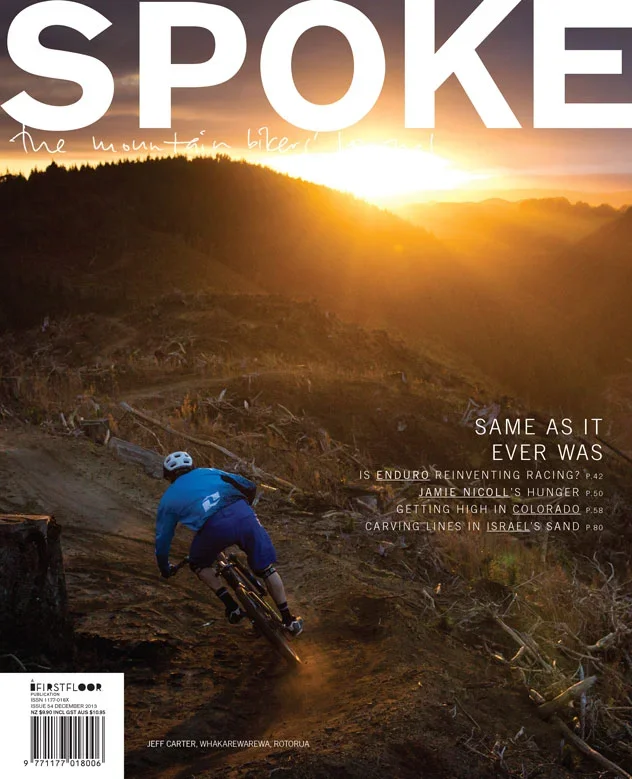

















































































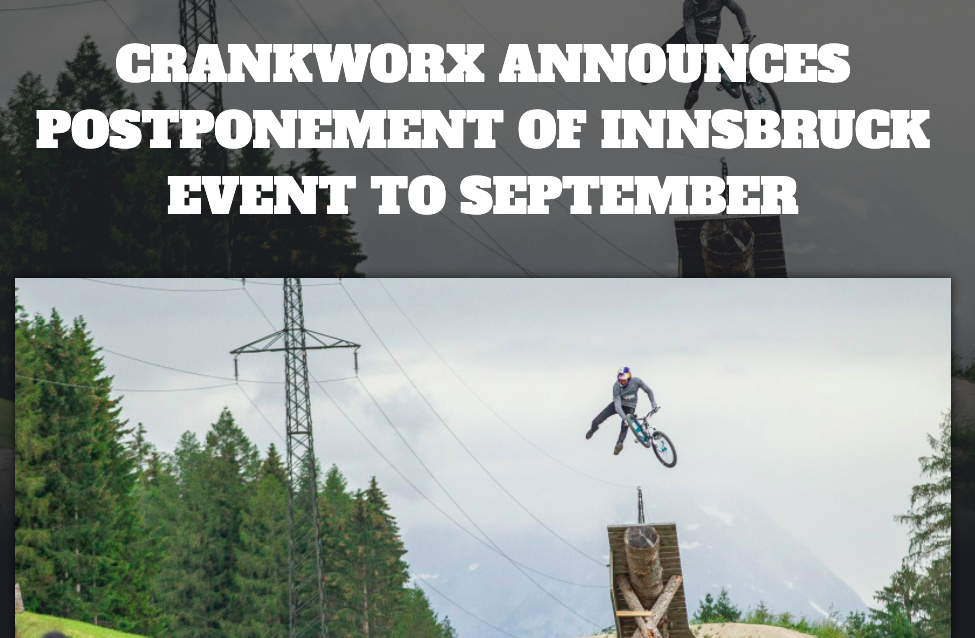






















Marketers often ask if magazines and endemic publications are still worth the spend in an era of Google searches and ChatGPT answers. From my first bike launch with Rocky Mountain to today’s AI-driven search landscape, I’ve seen how trusted outlets still drive visibility, credibility, and storytelling that digital ads alone can’t deliver.